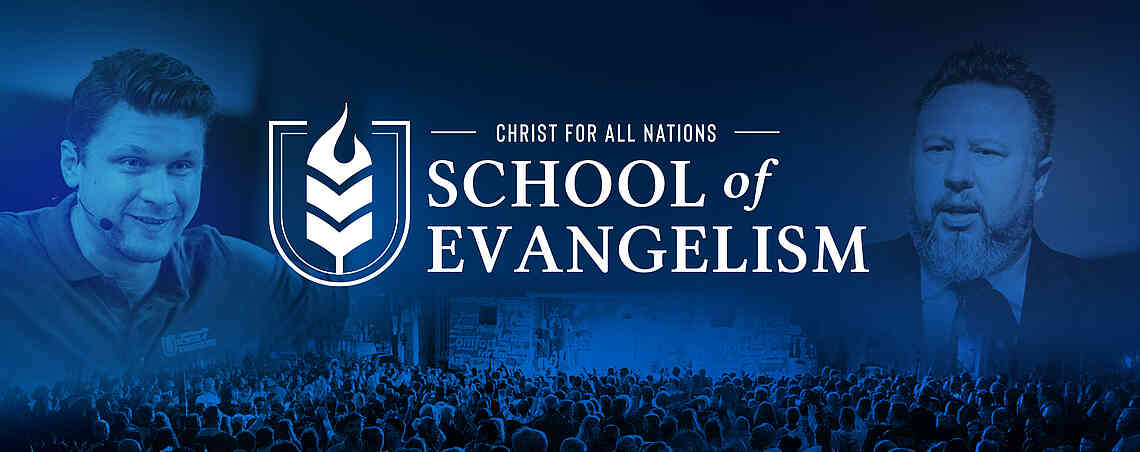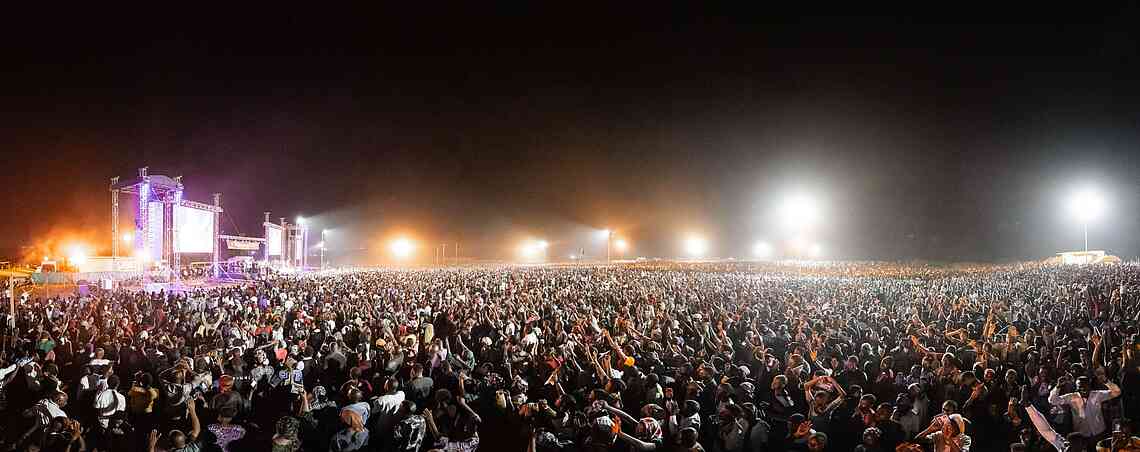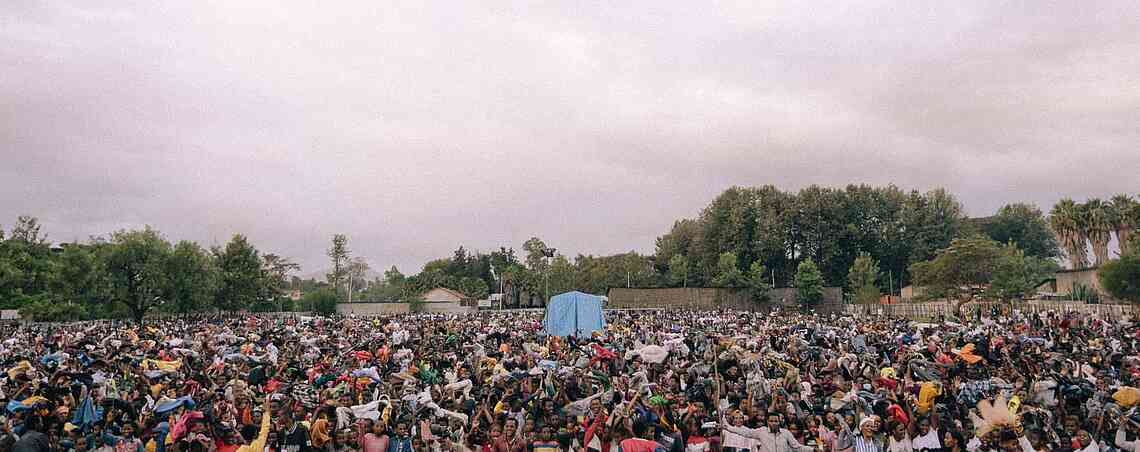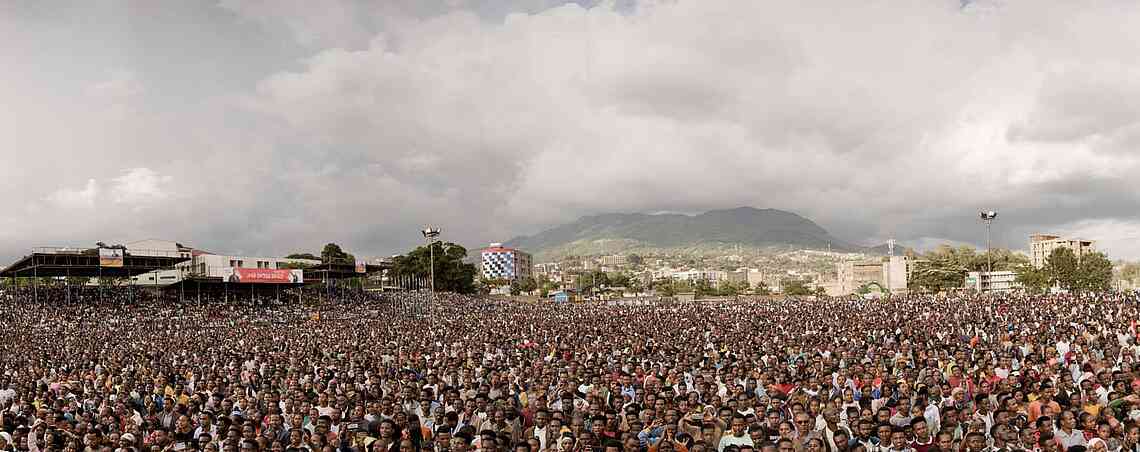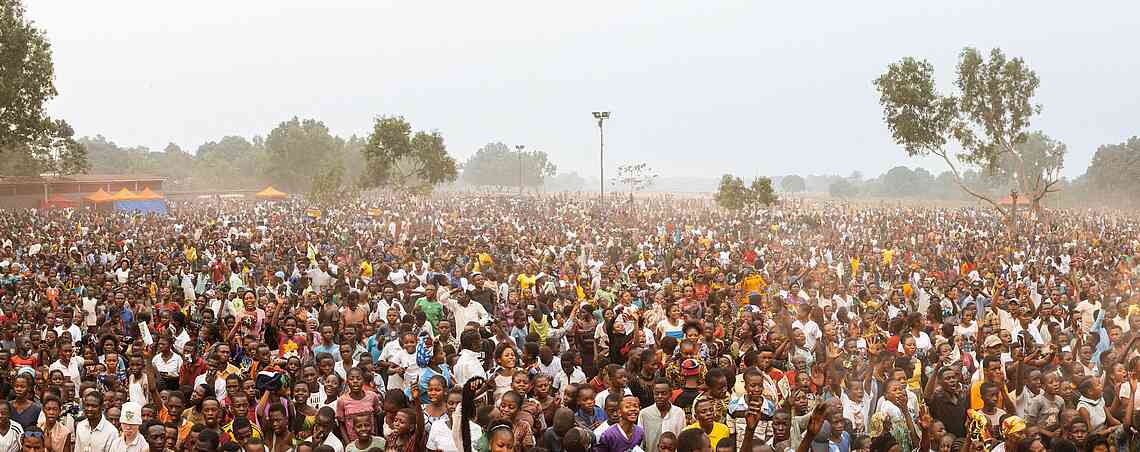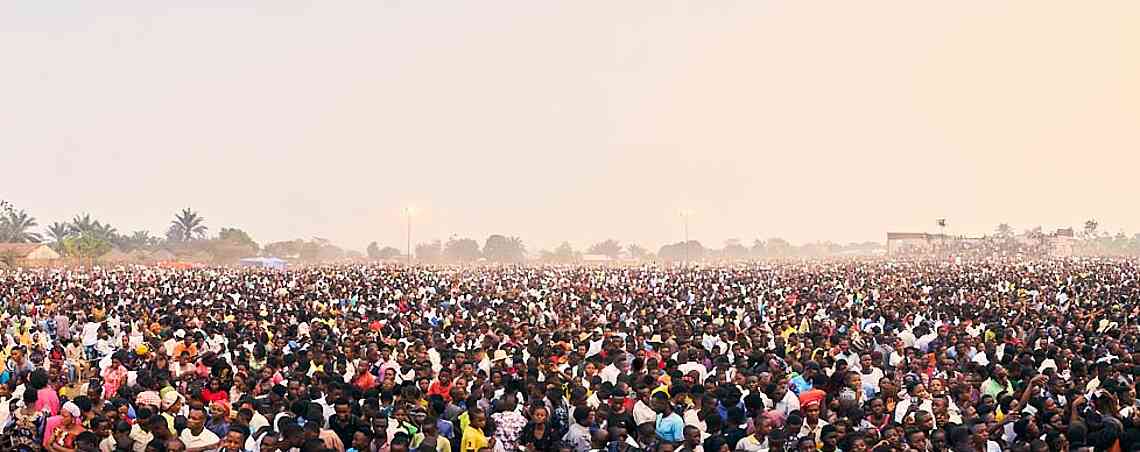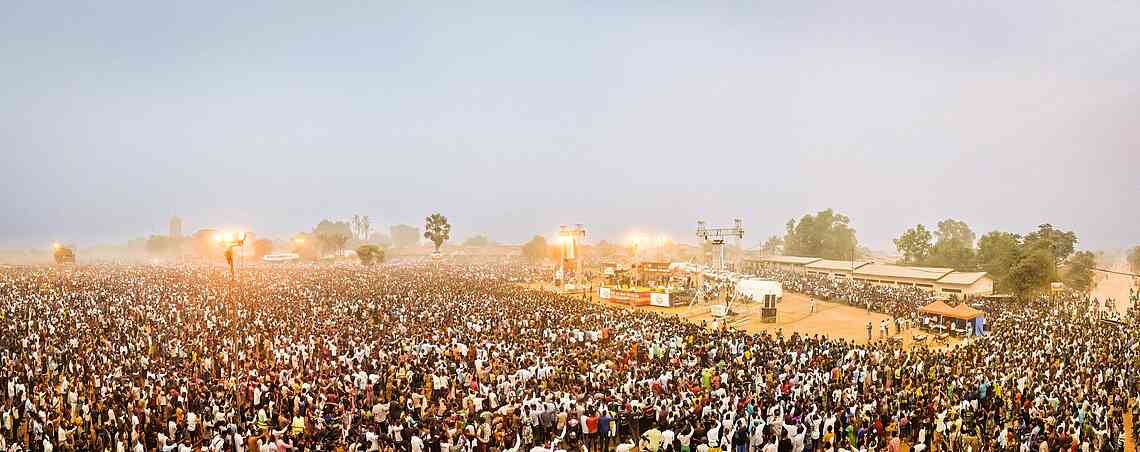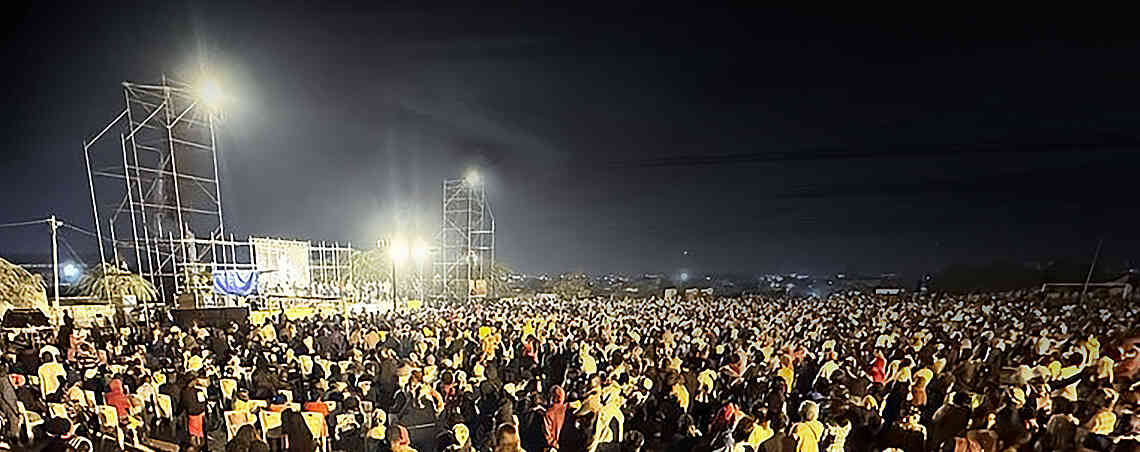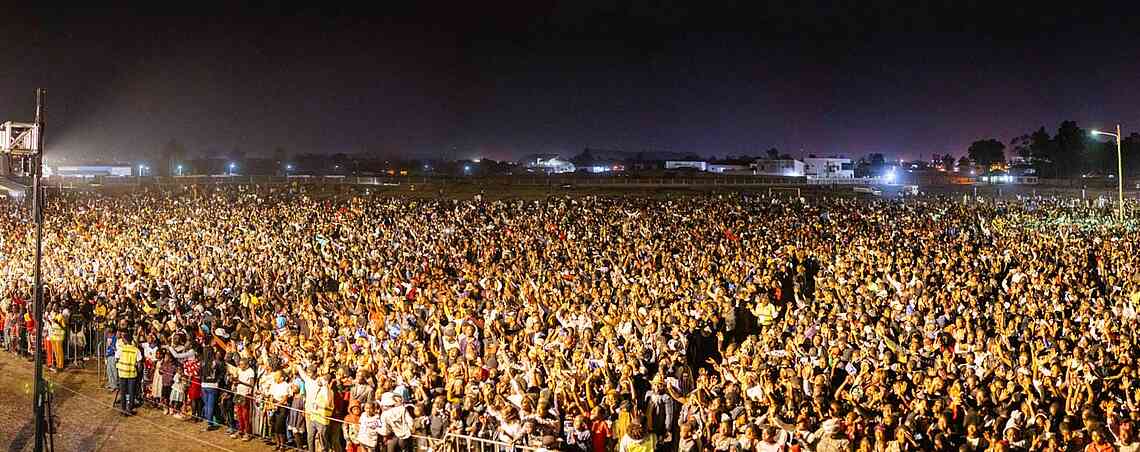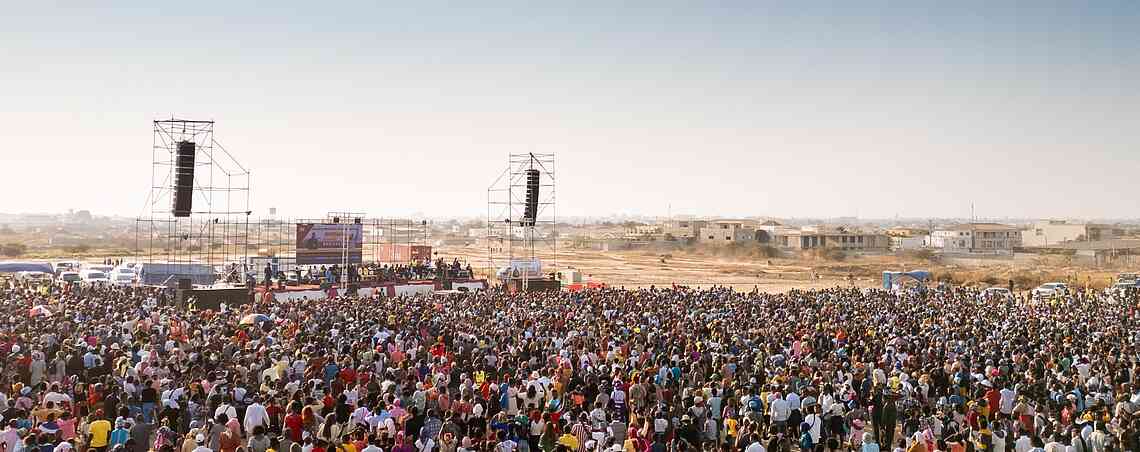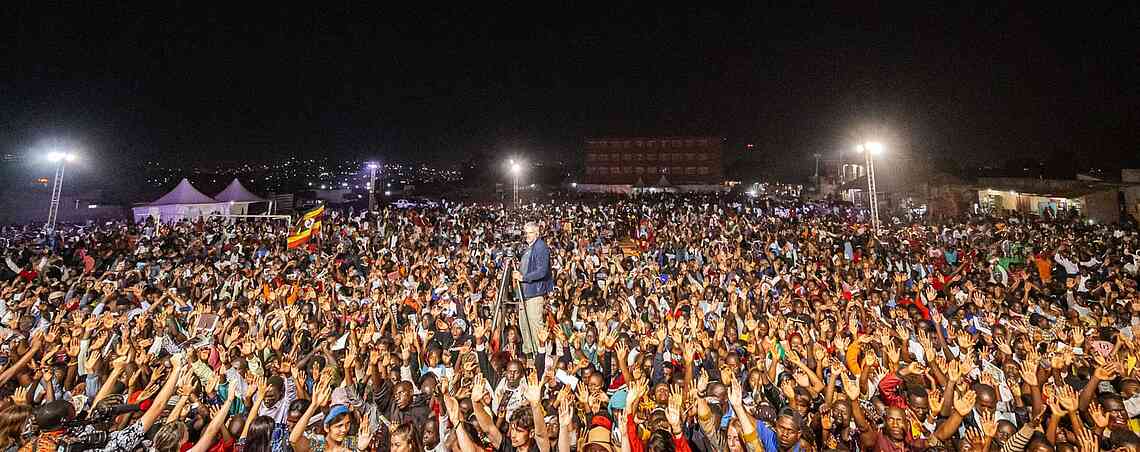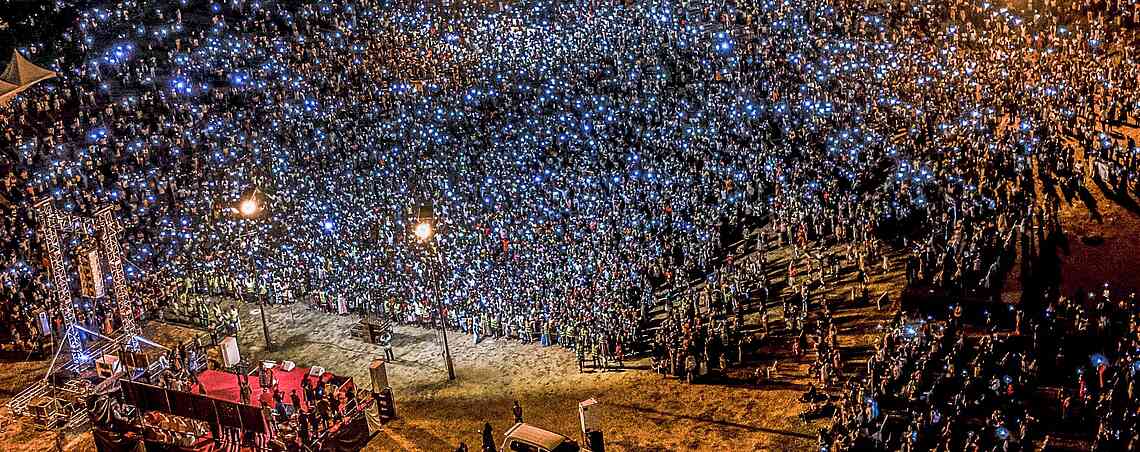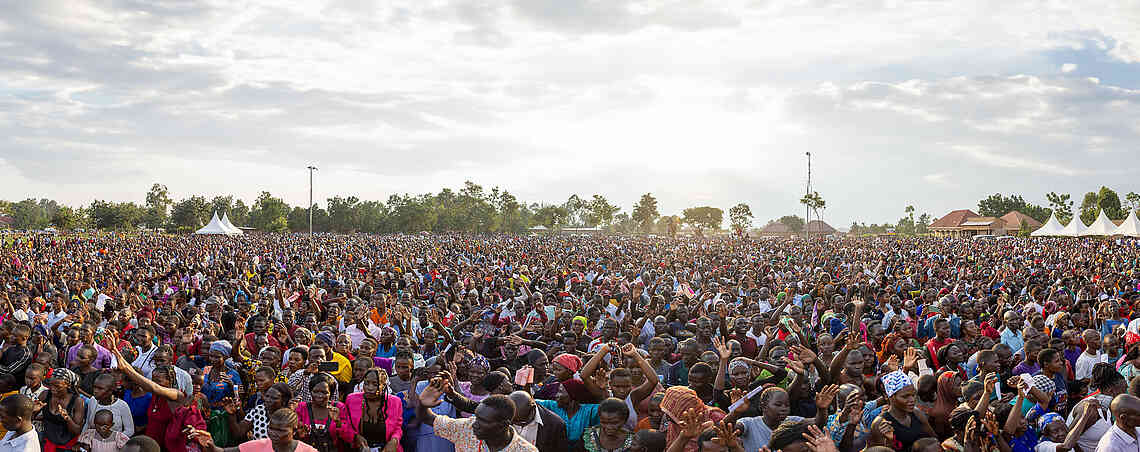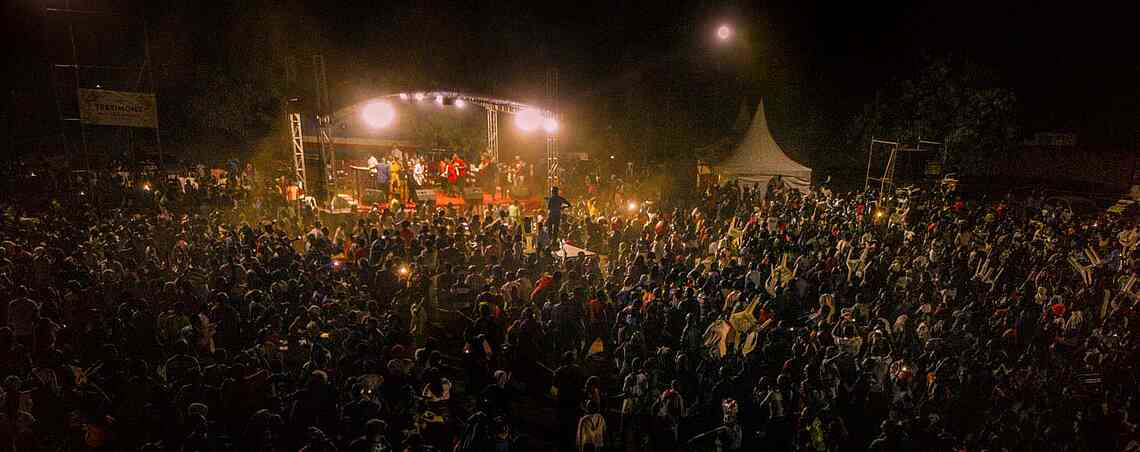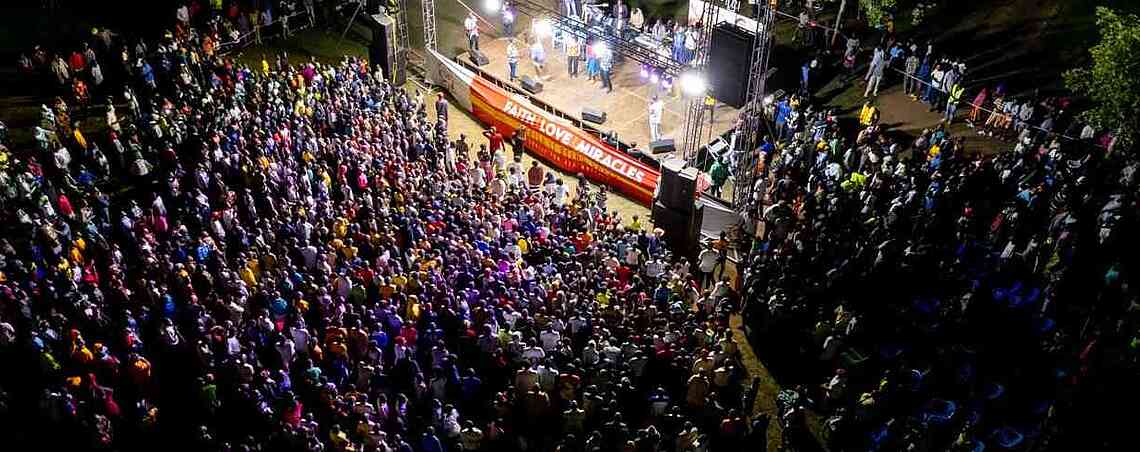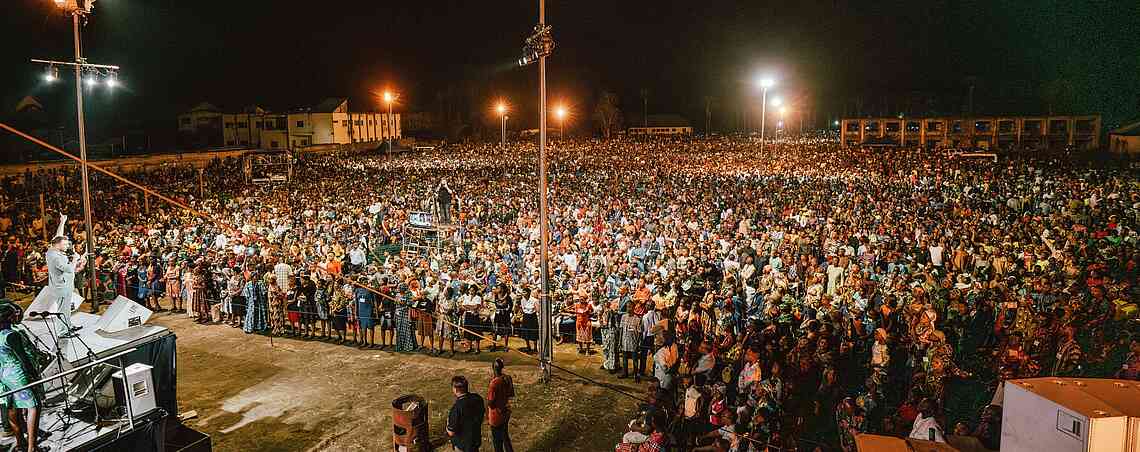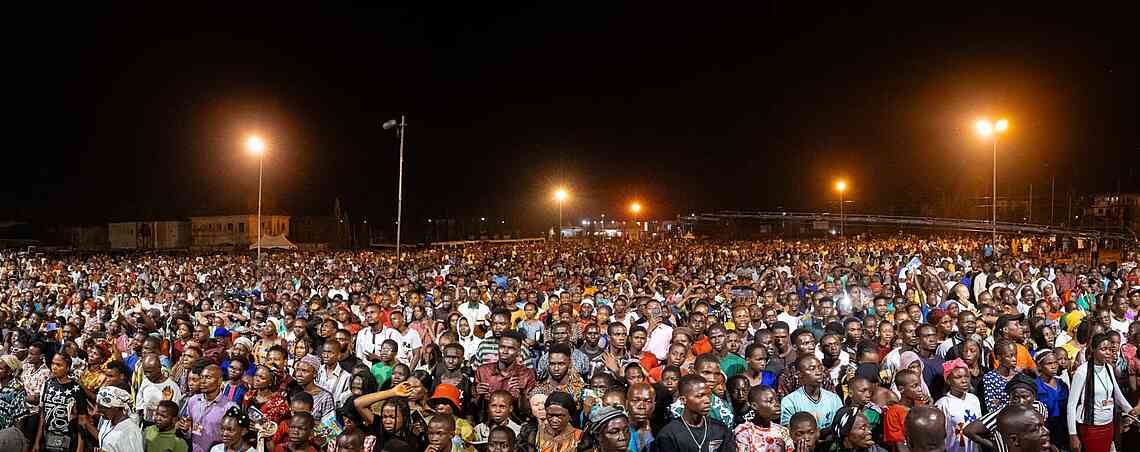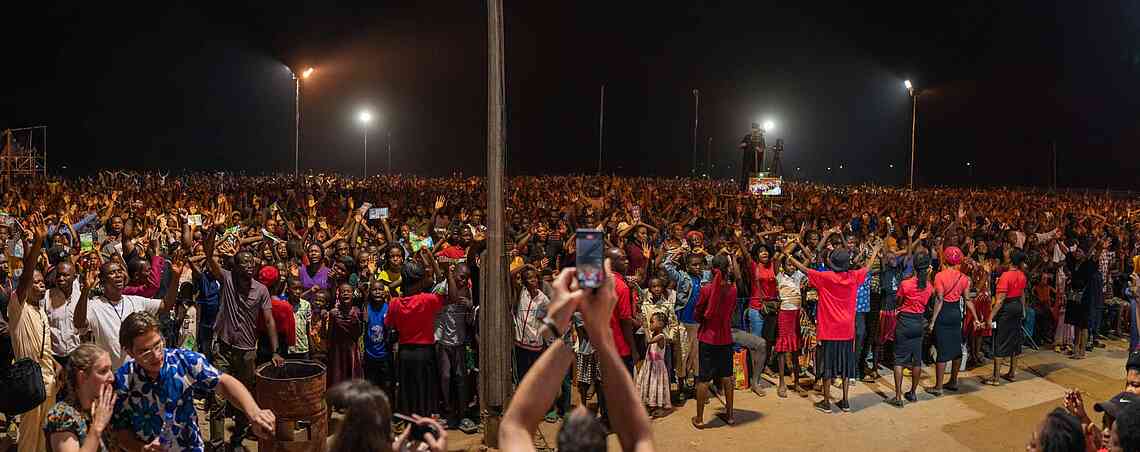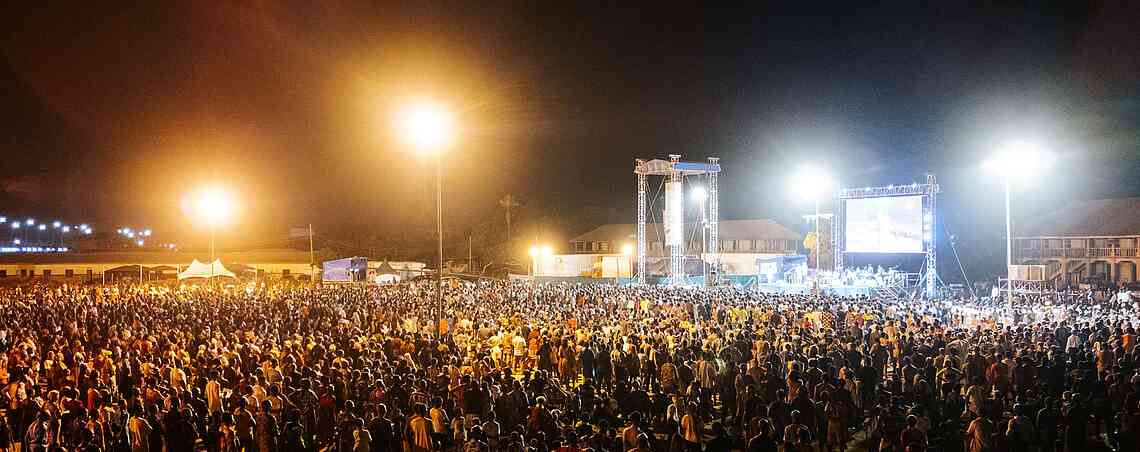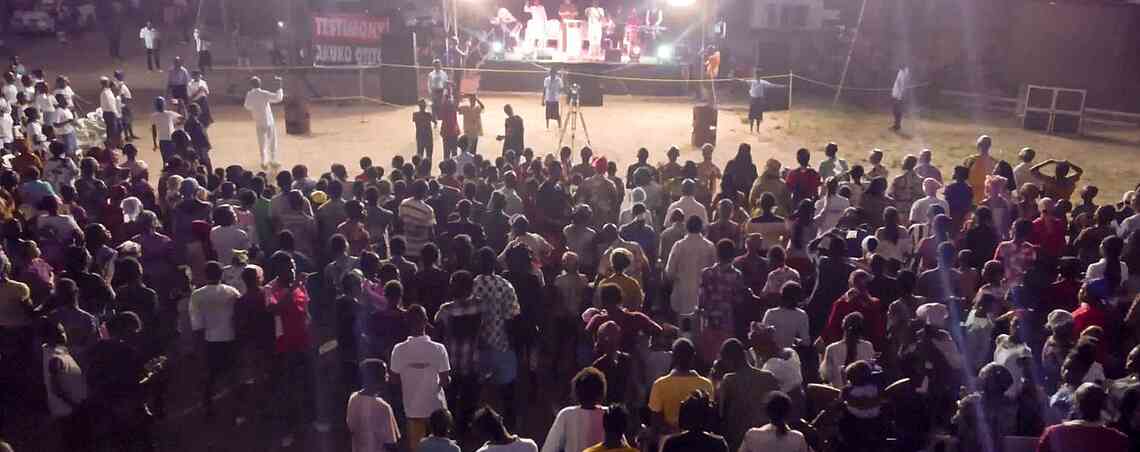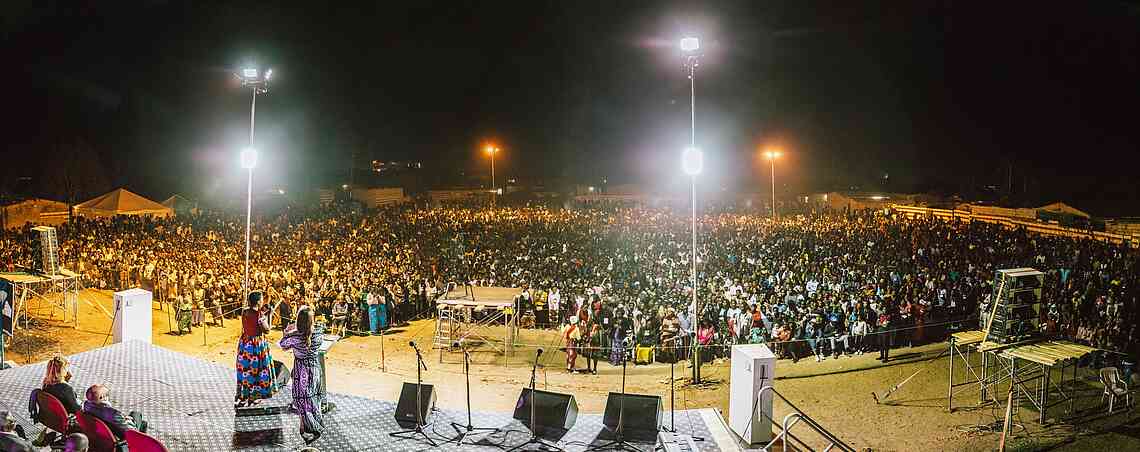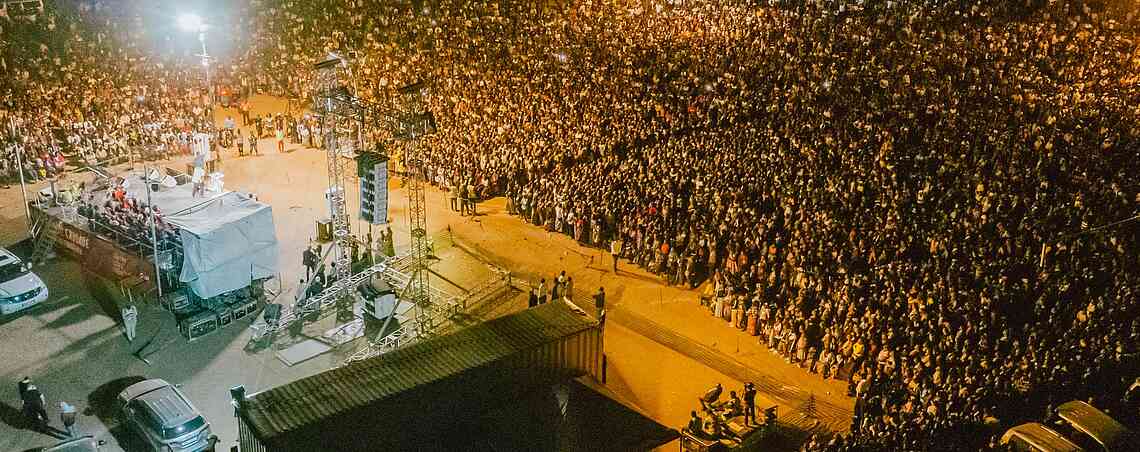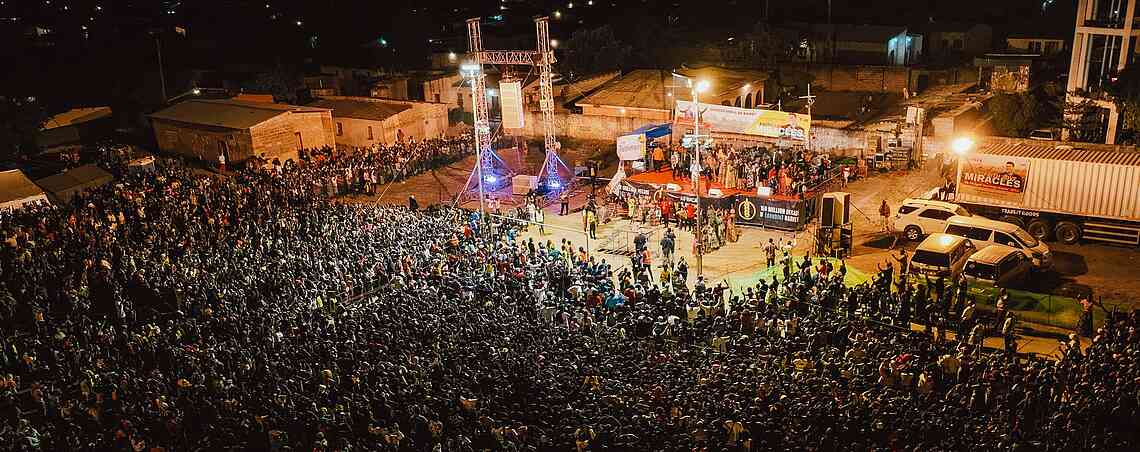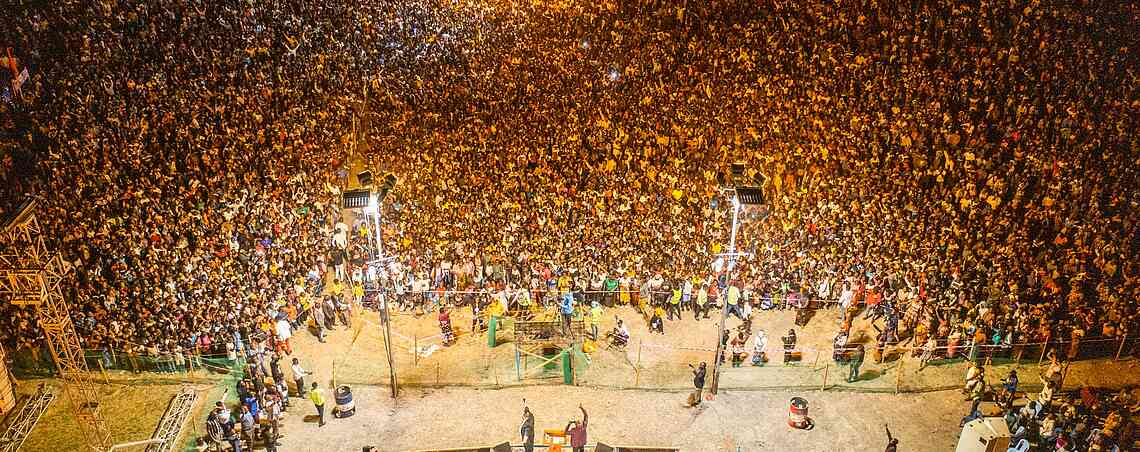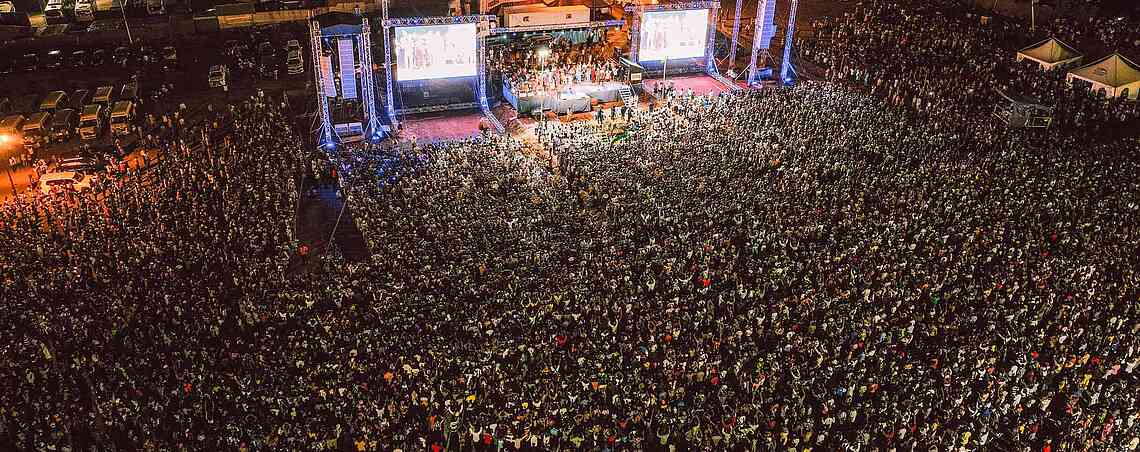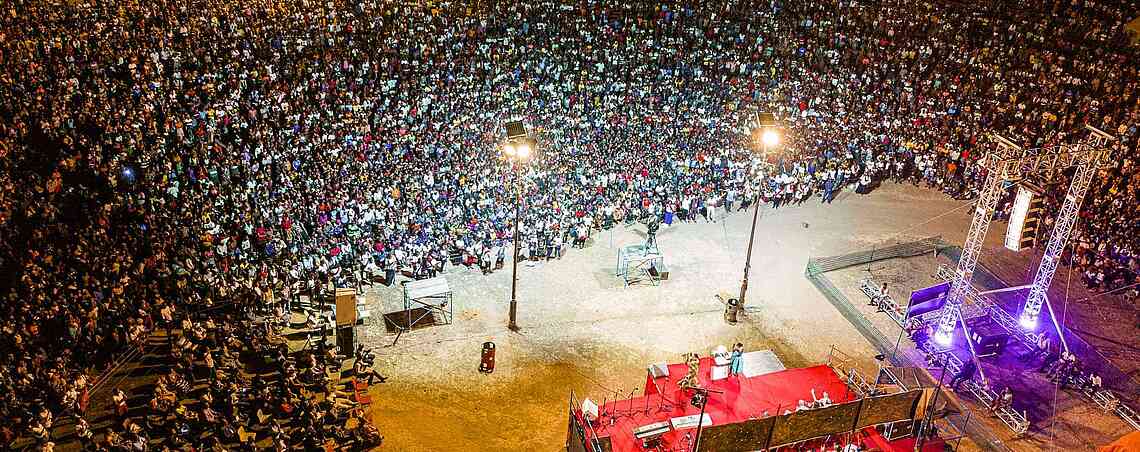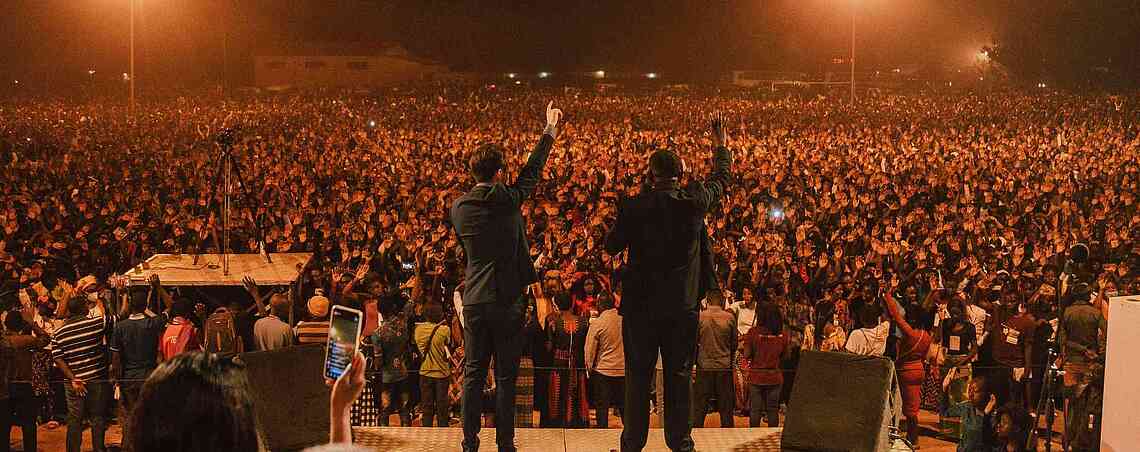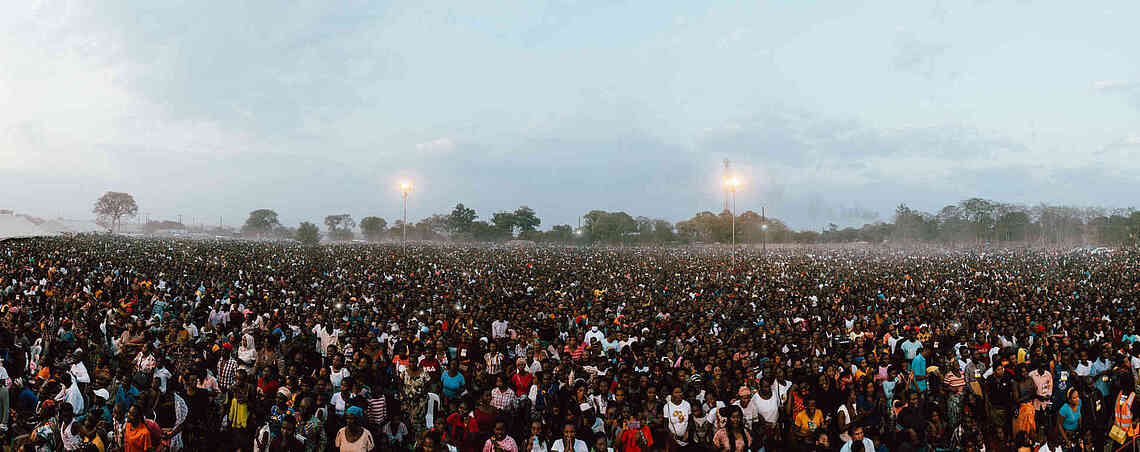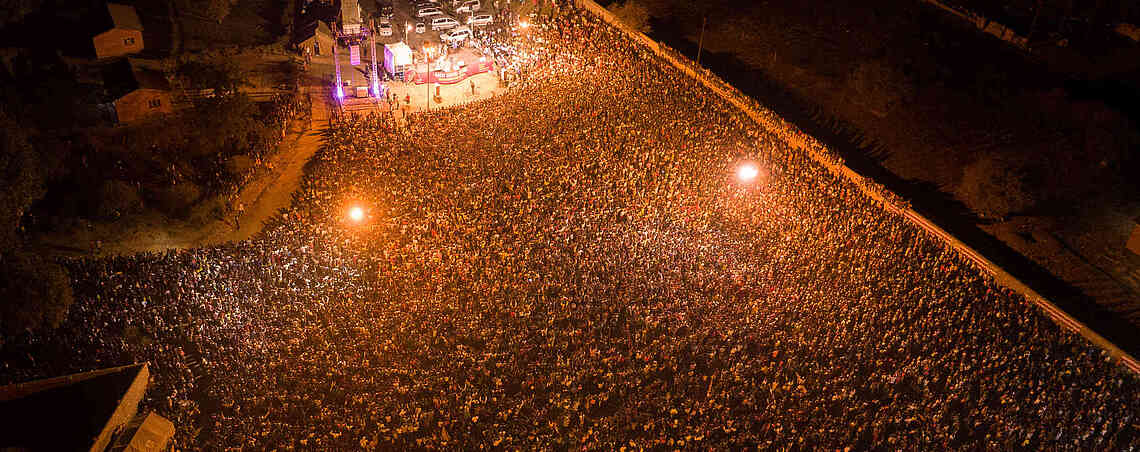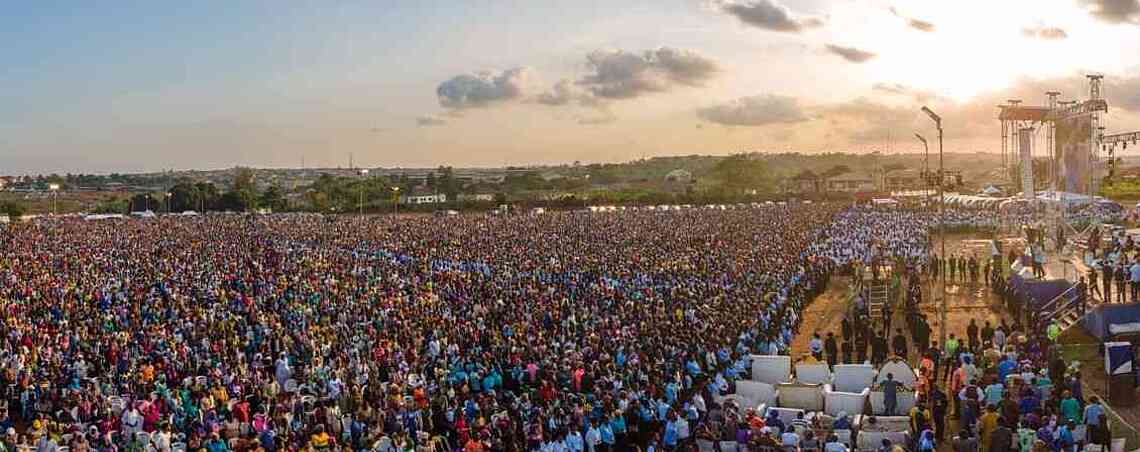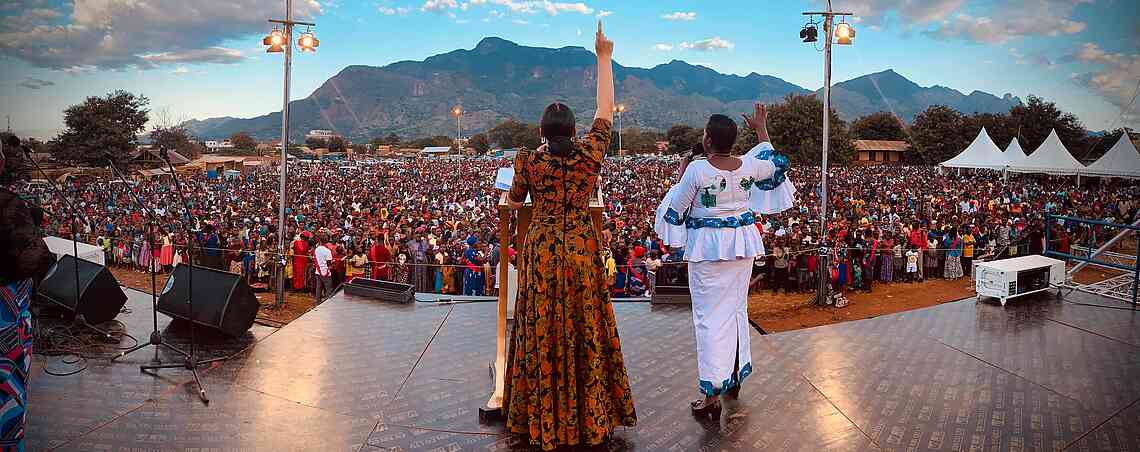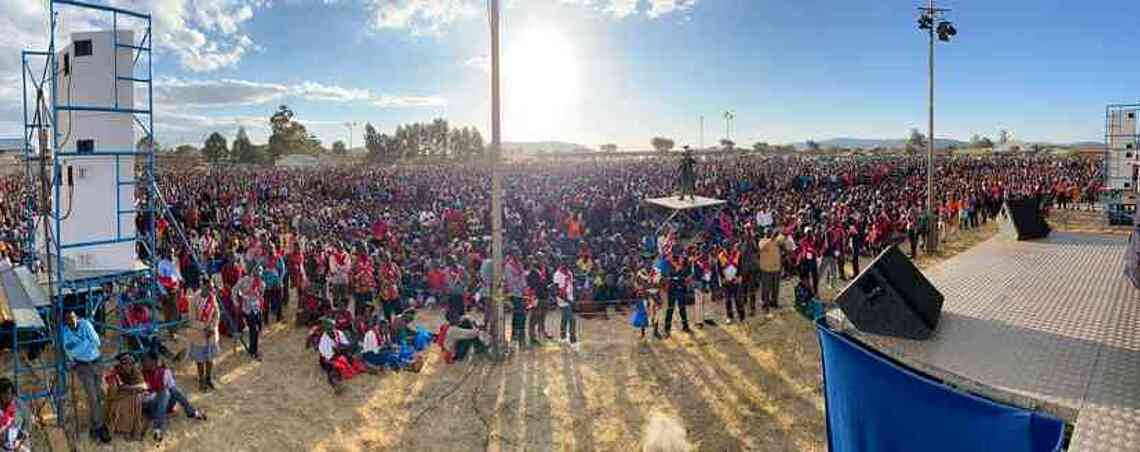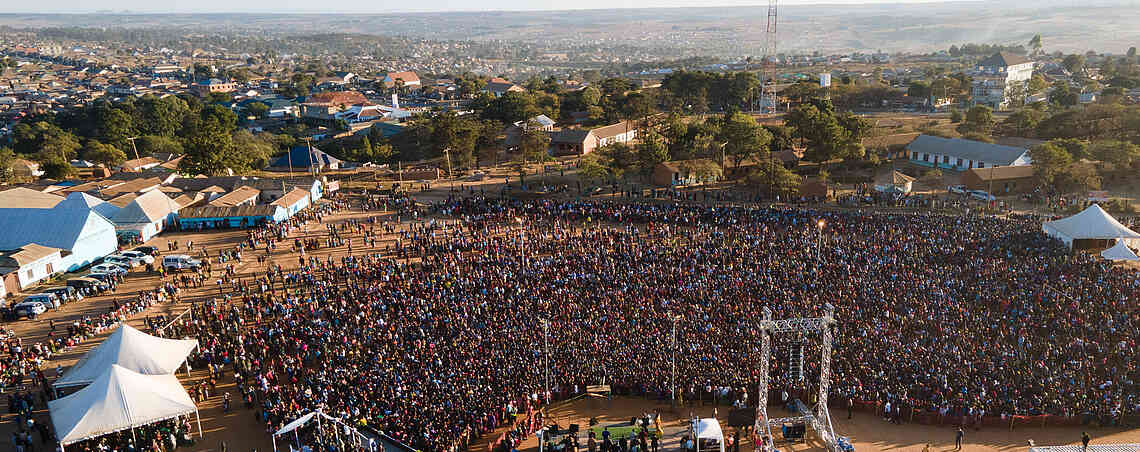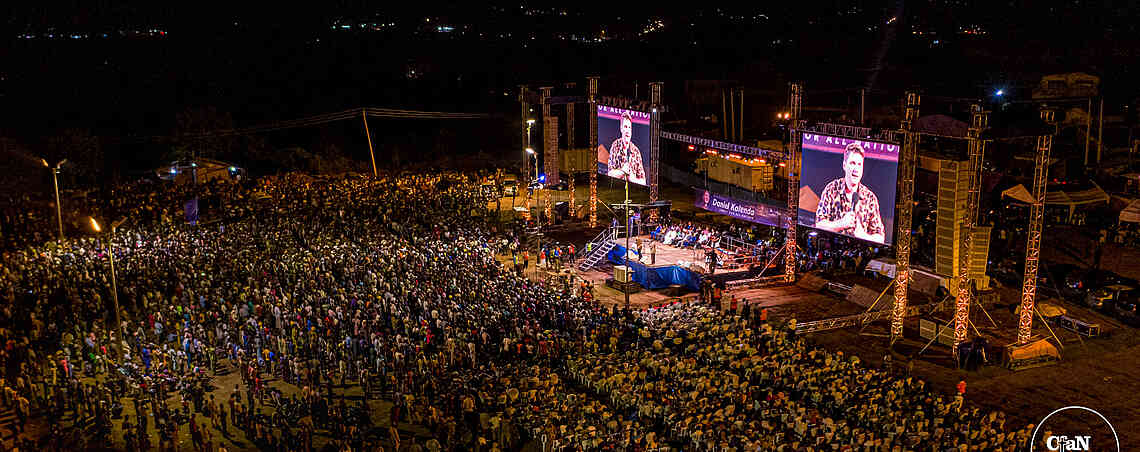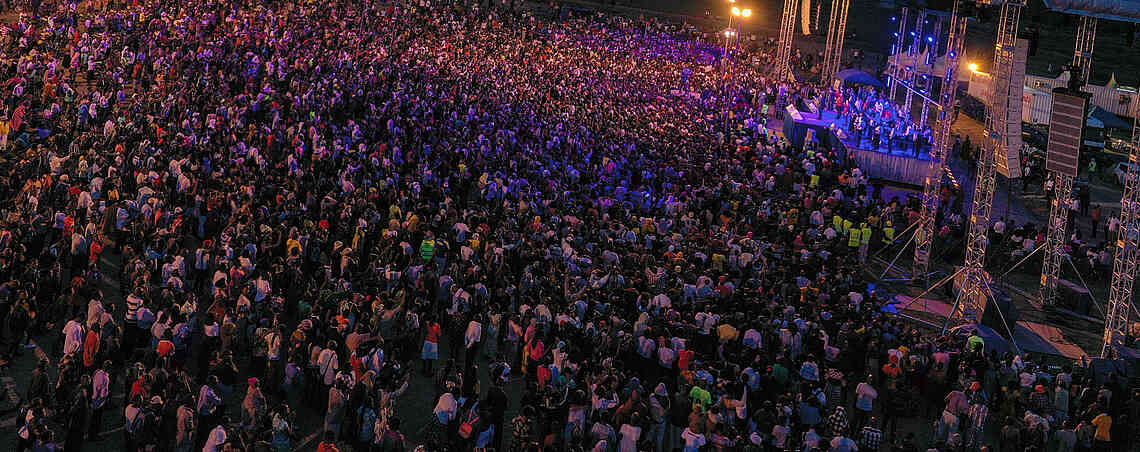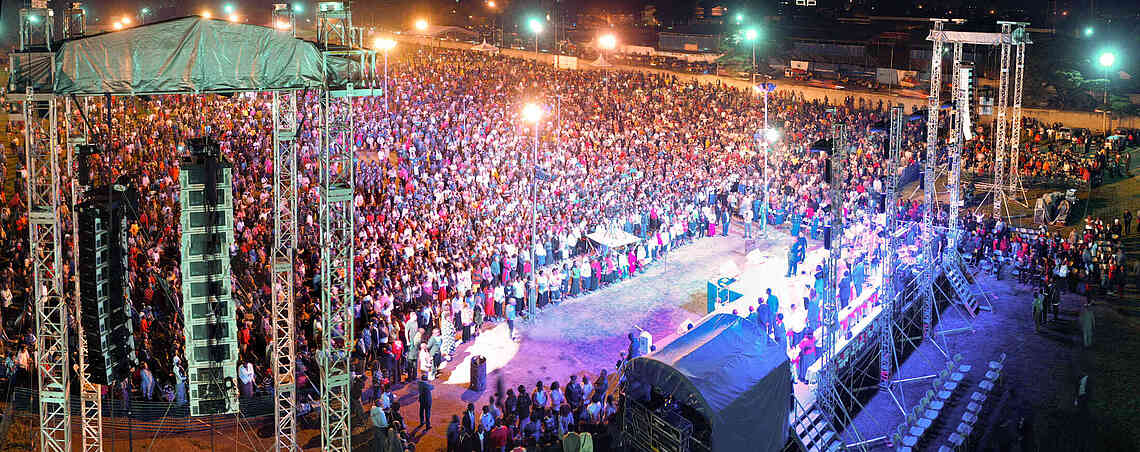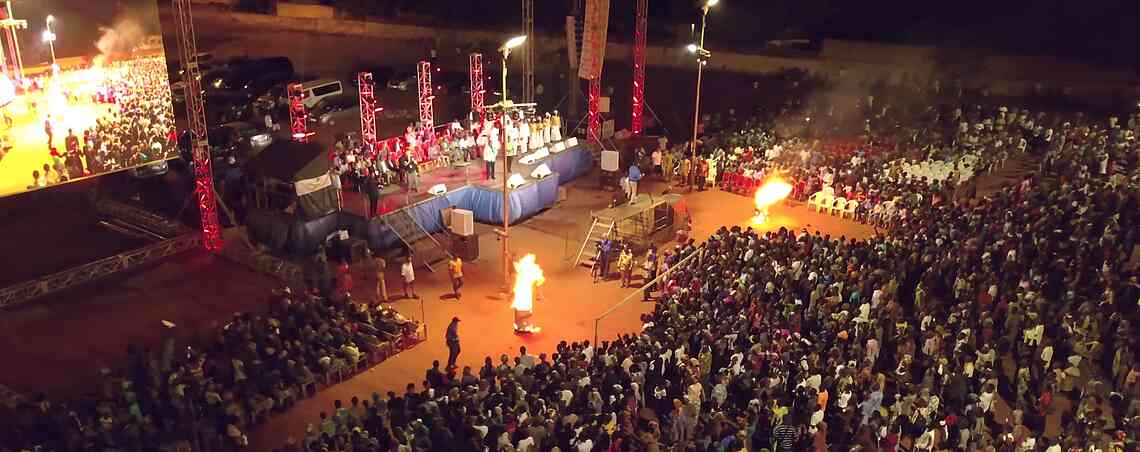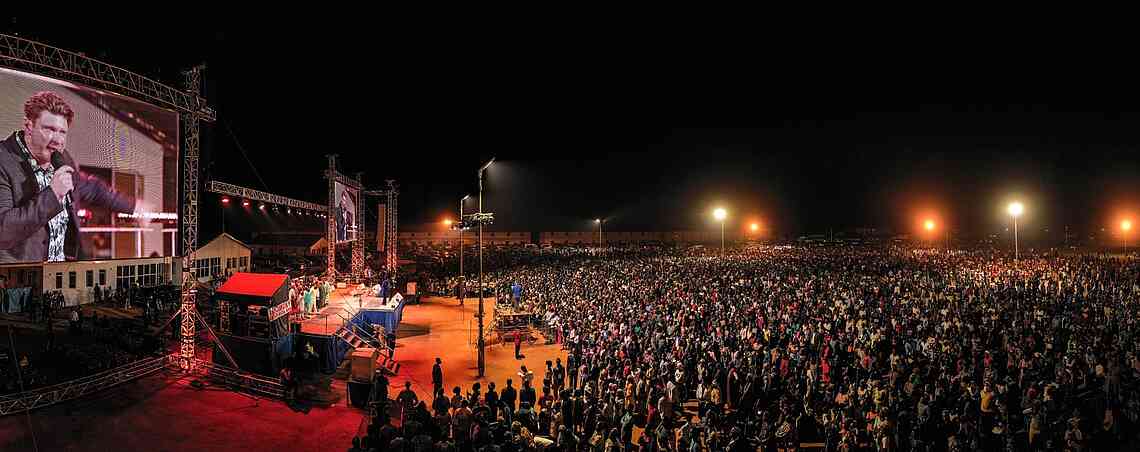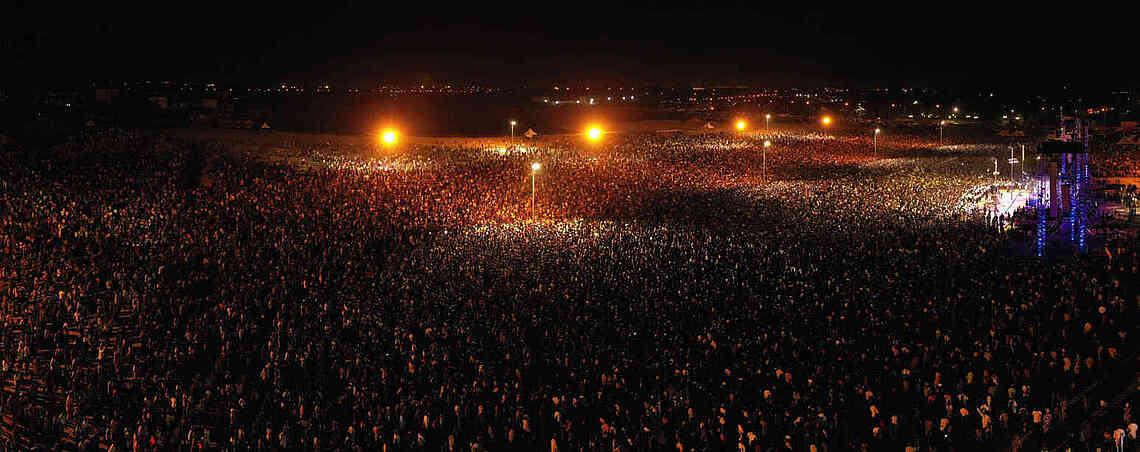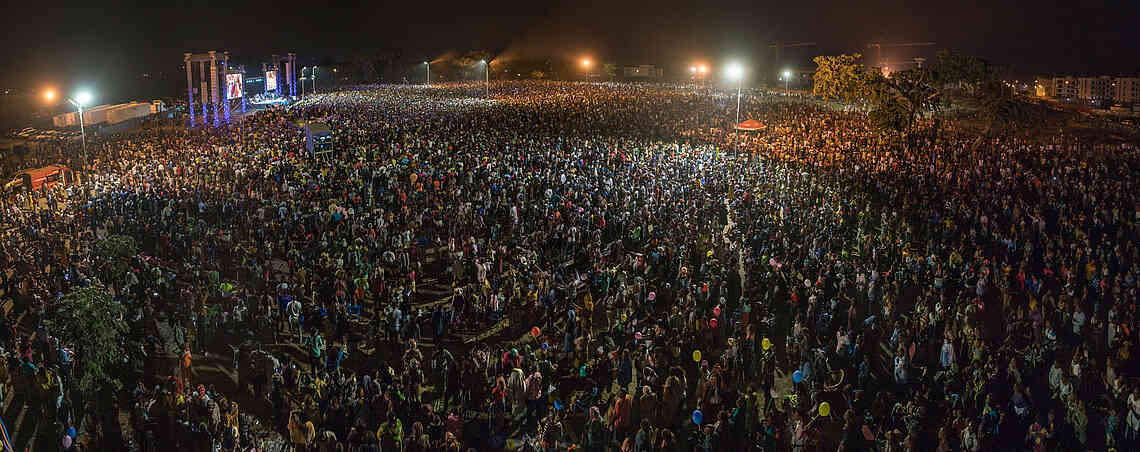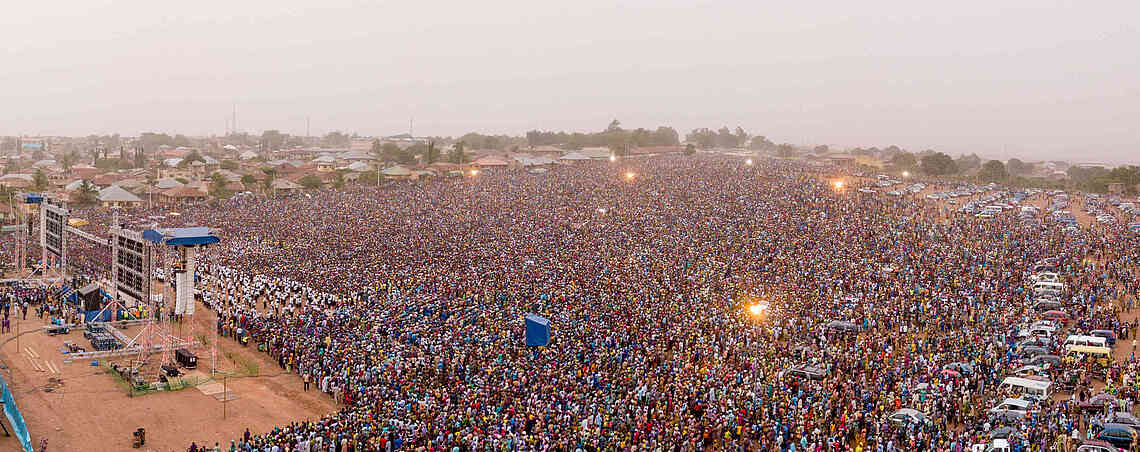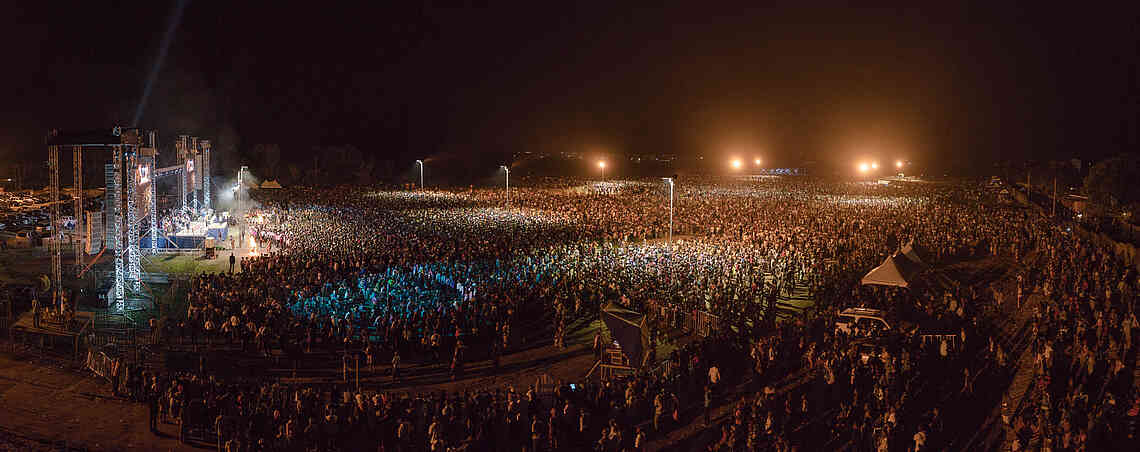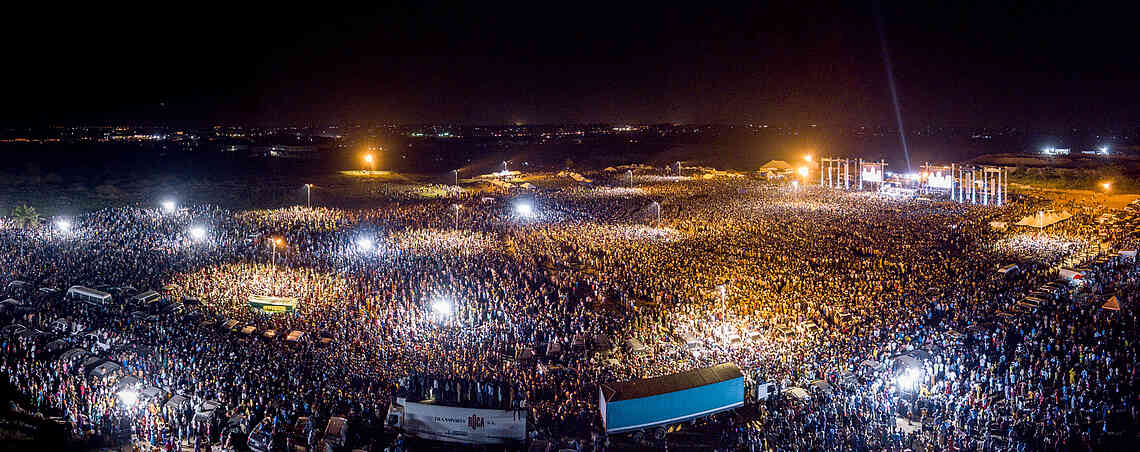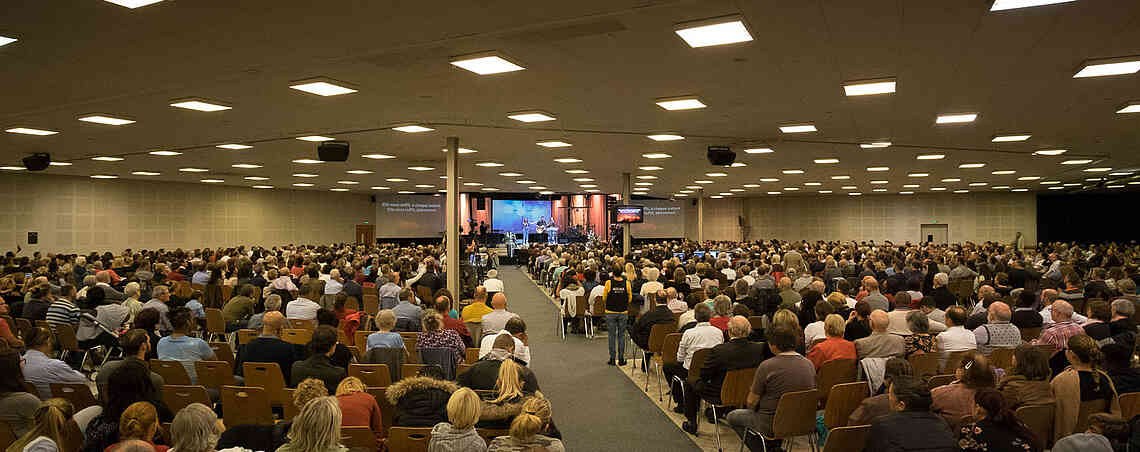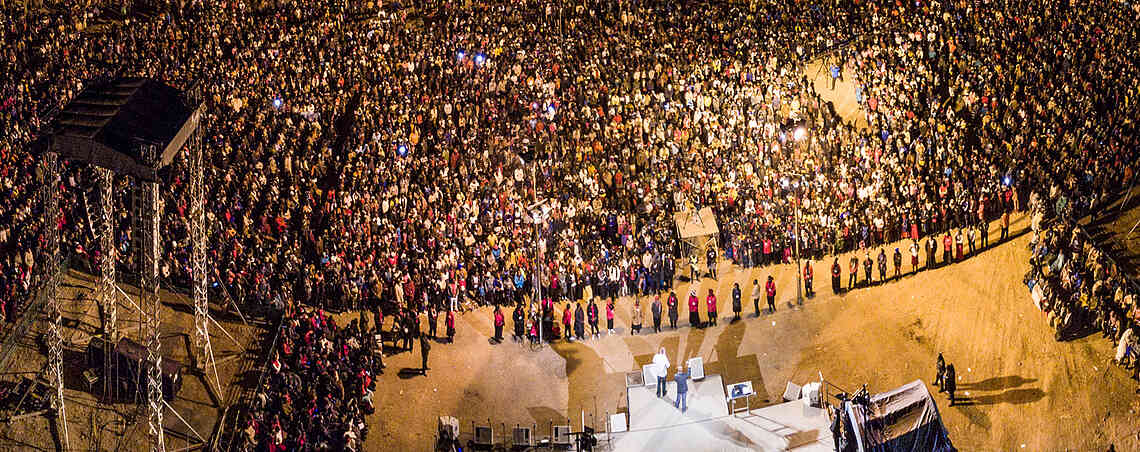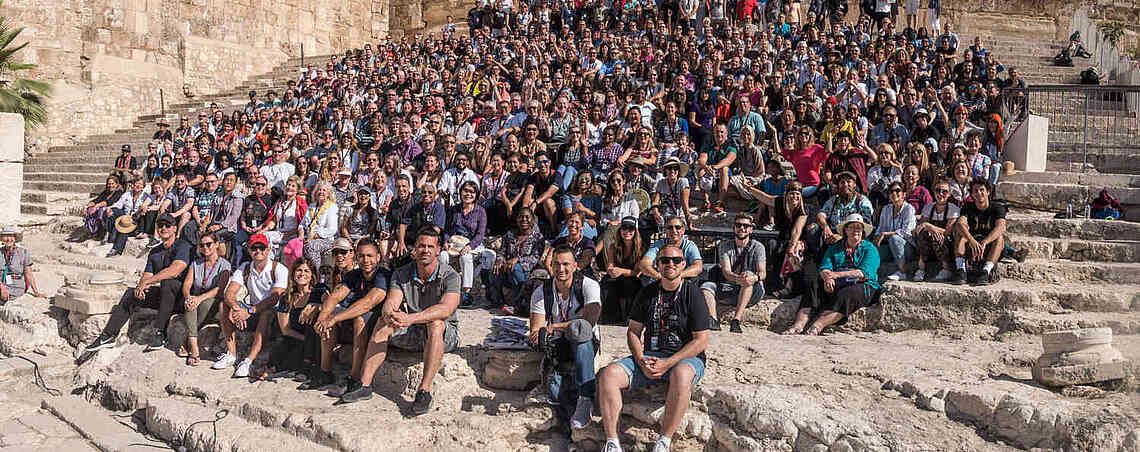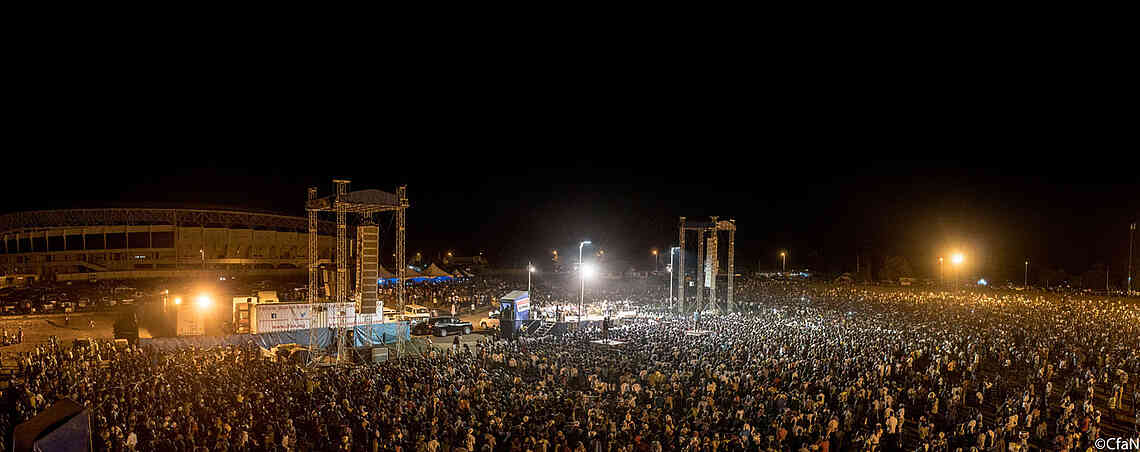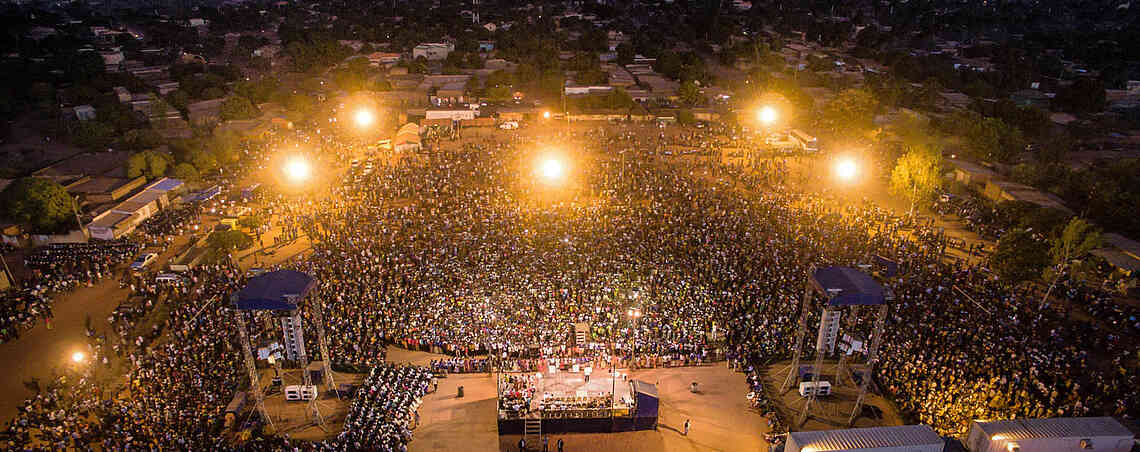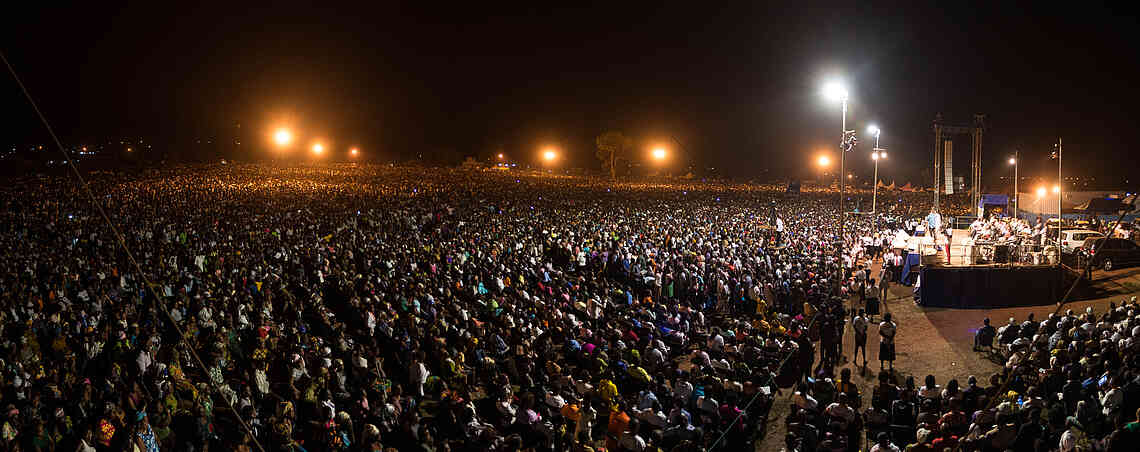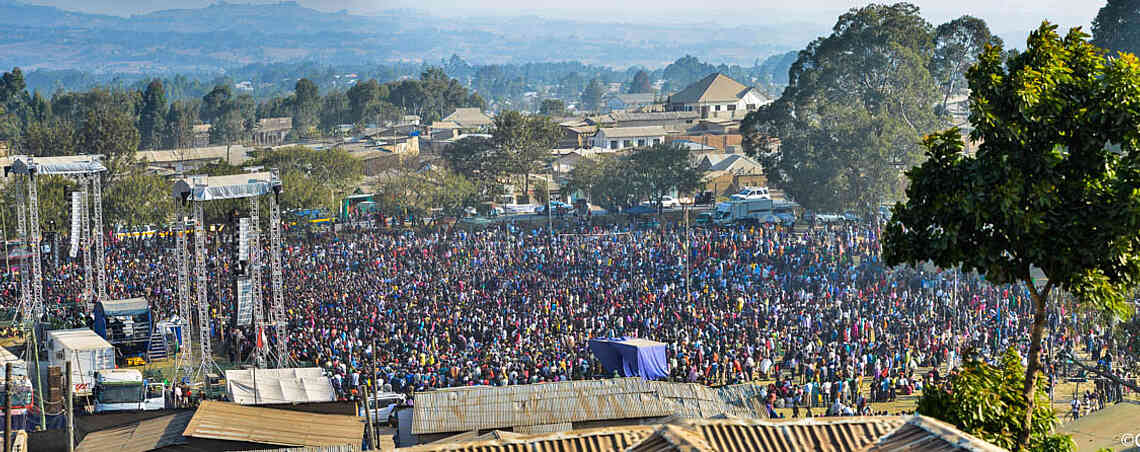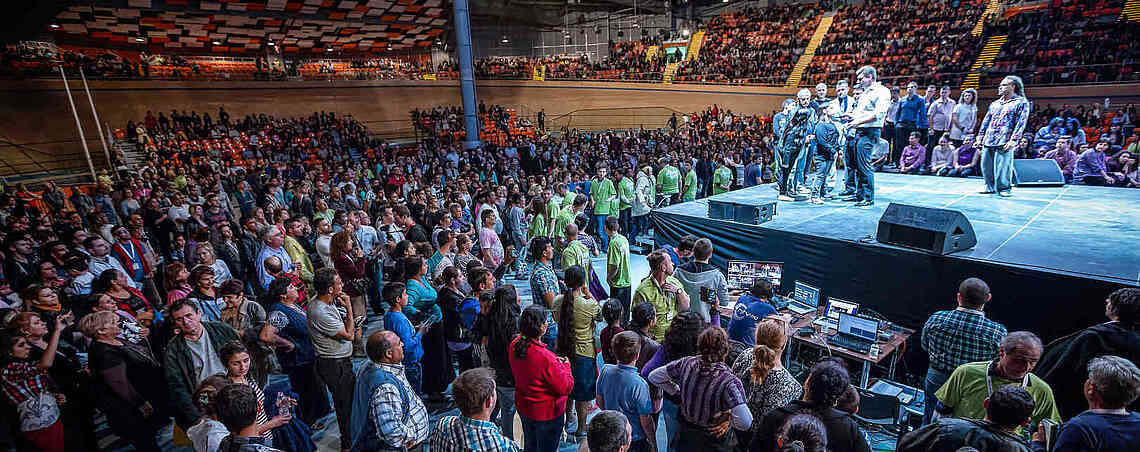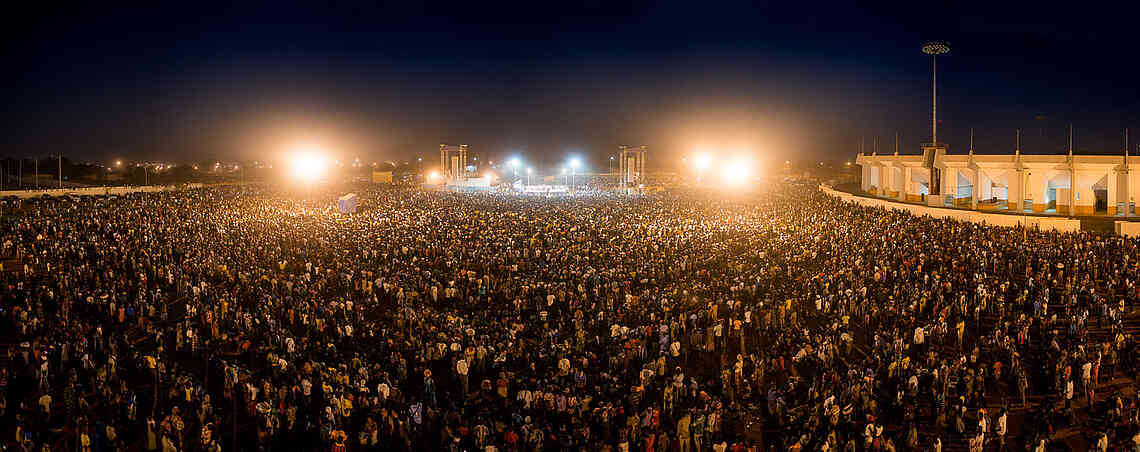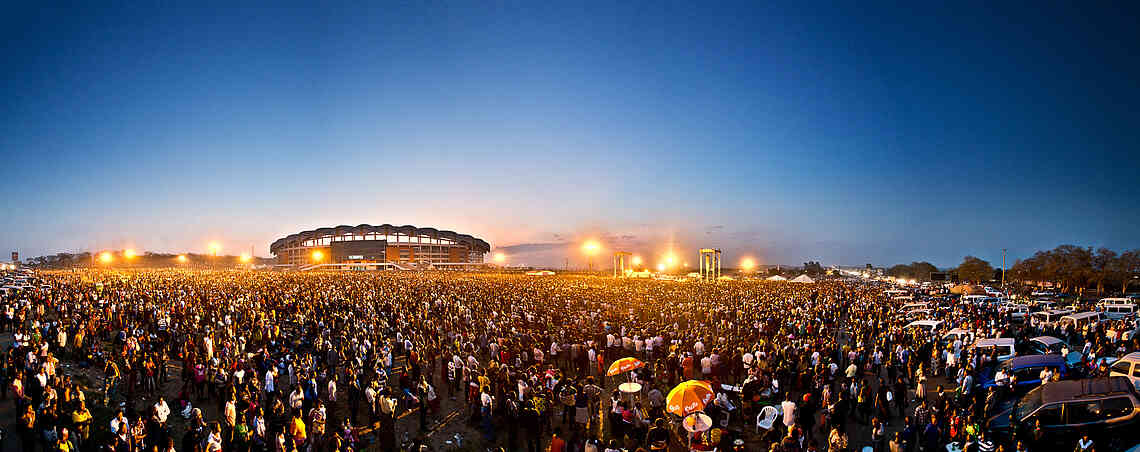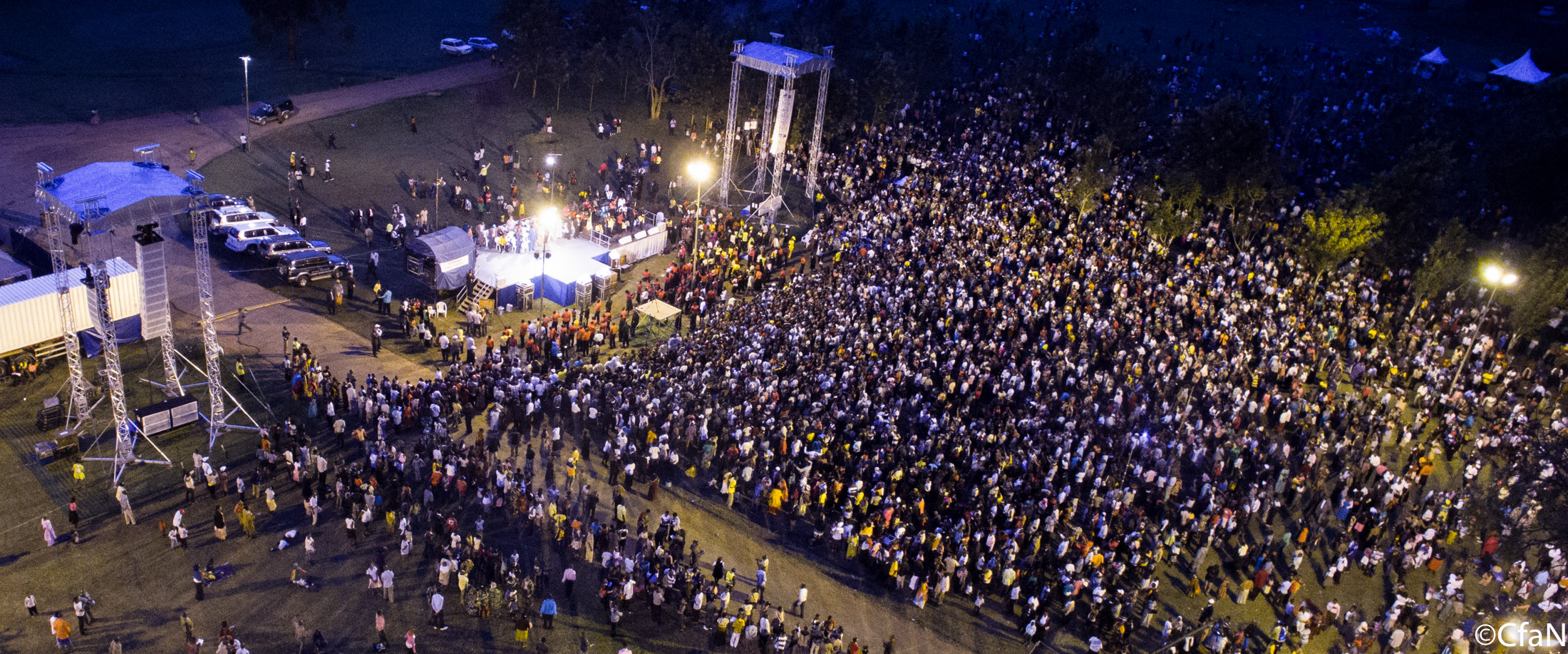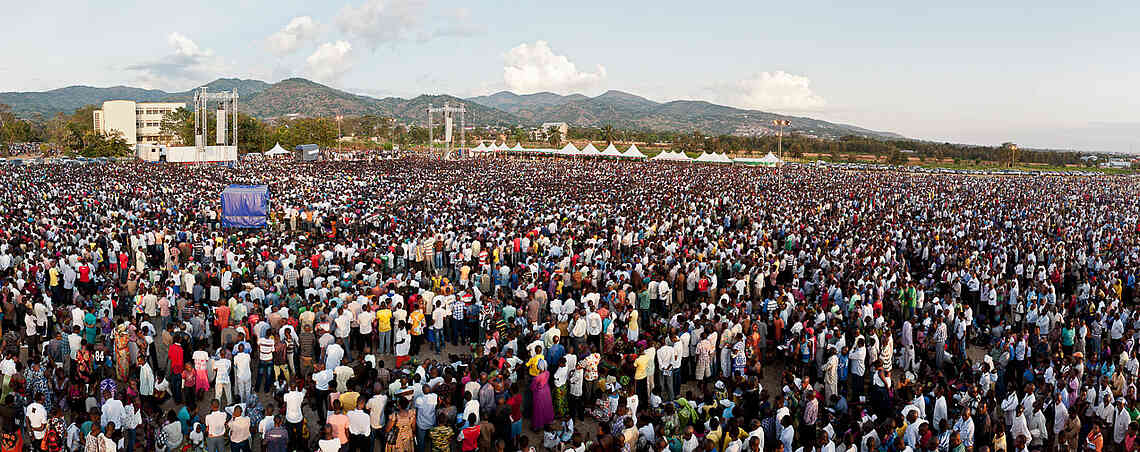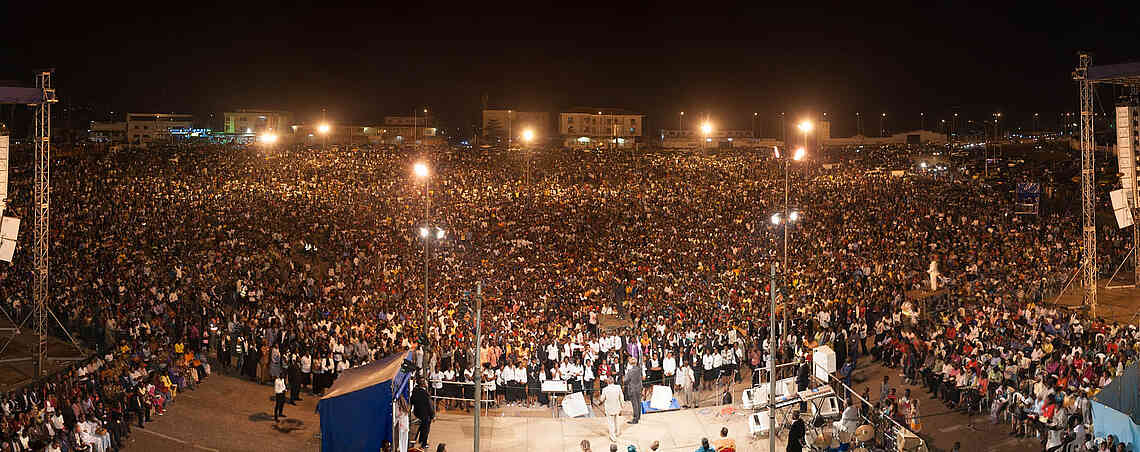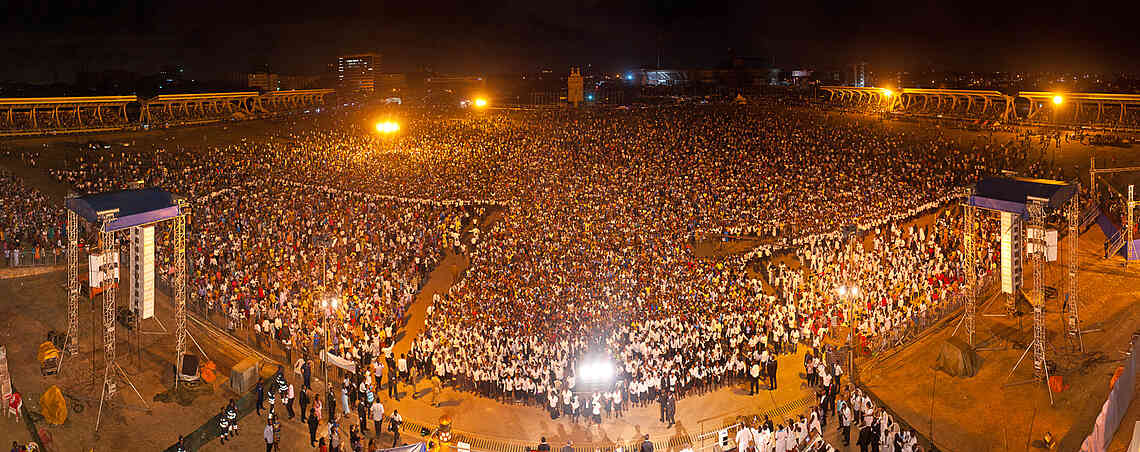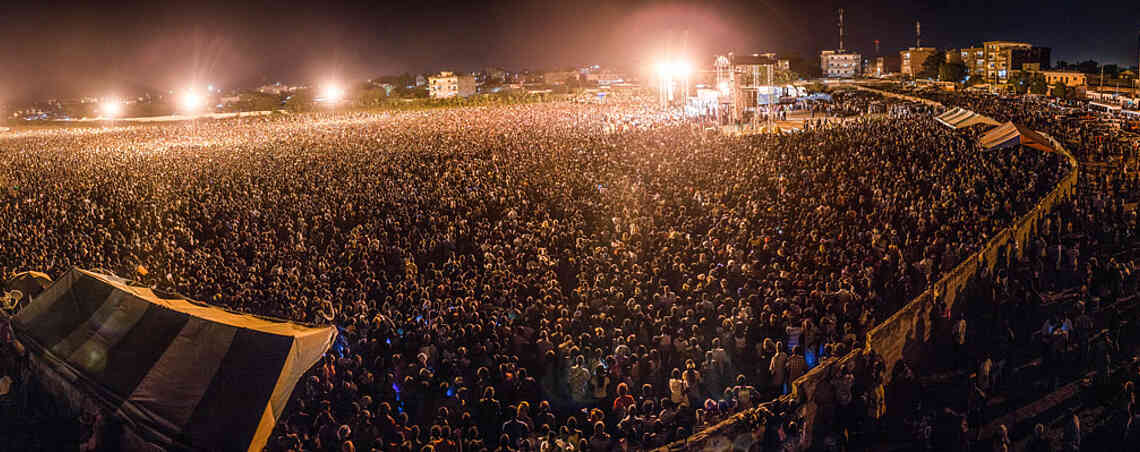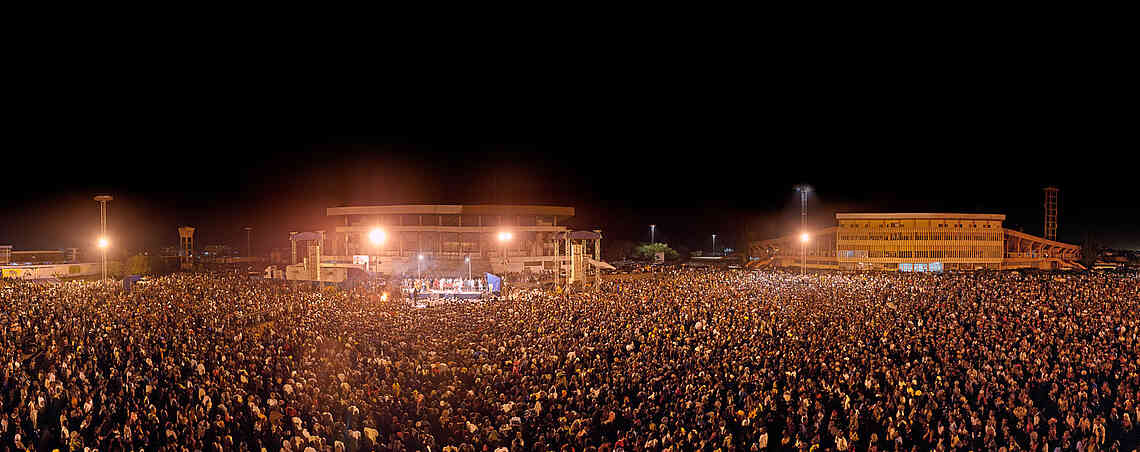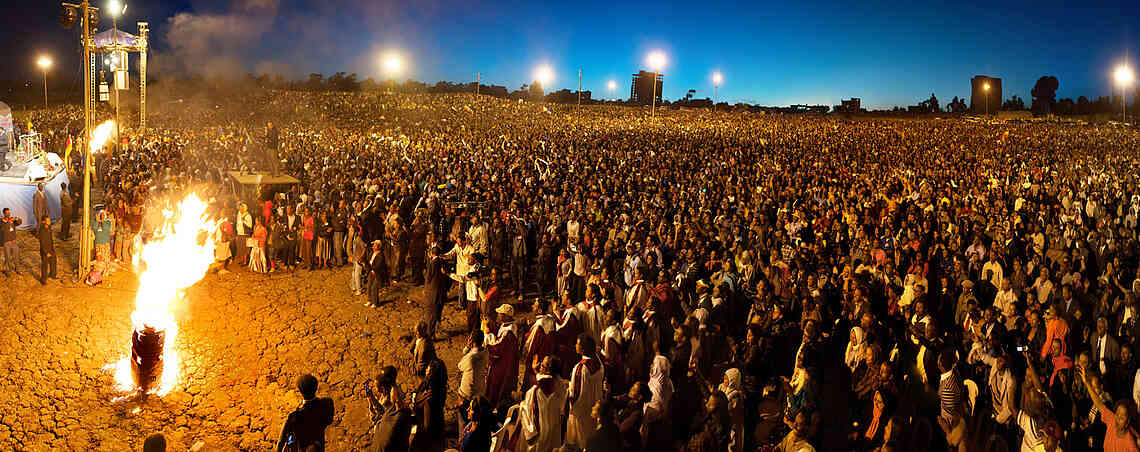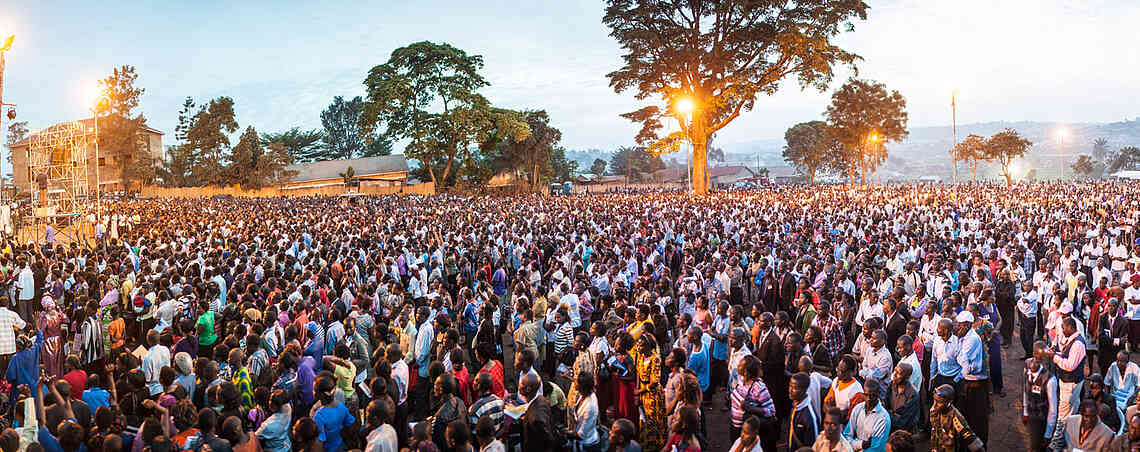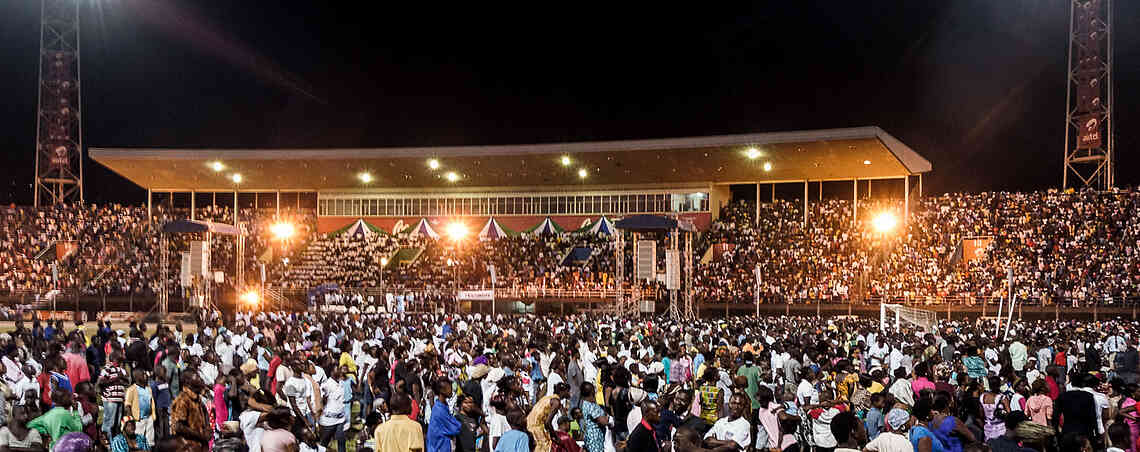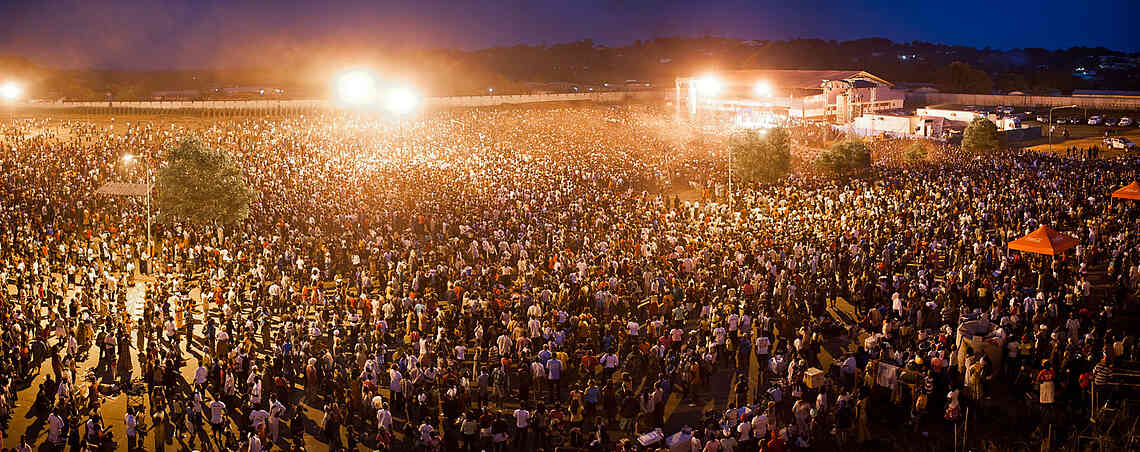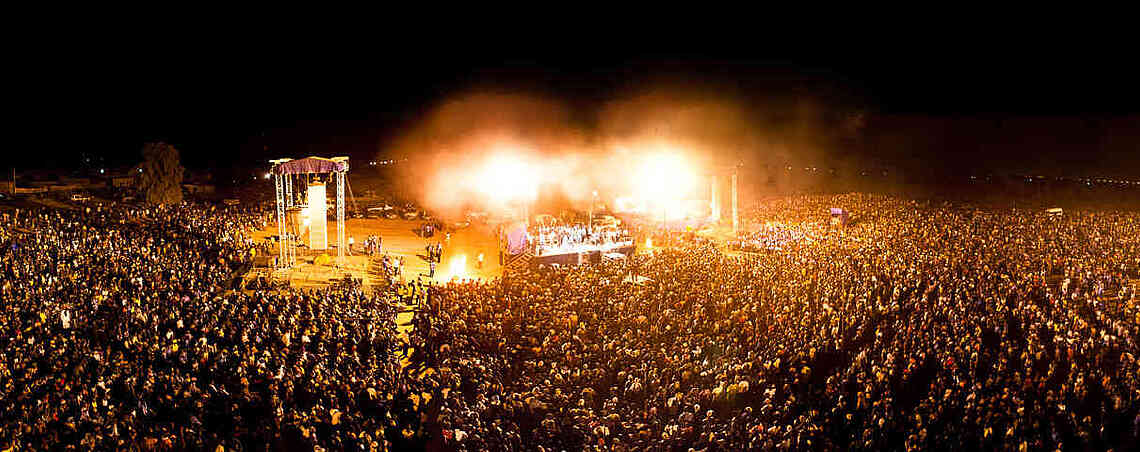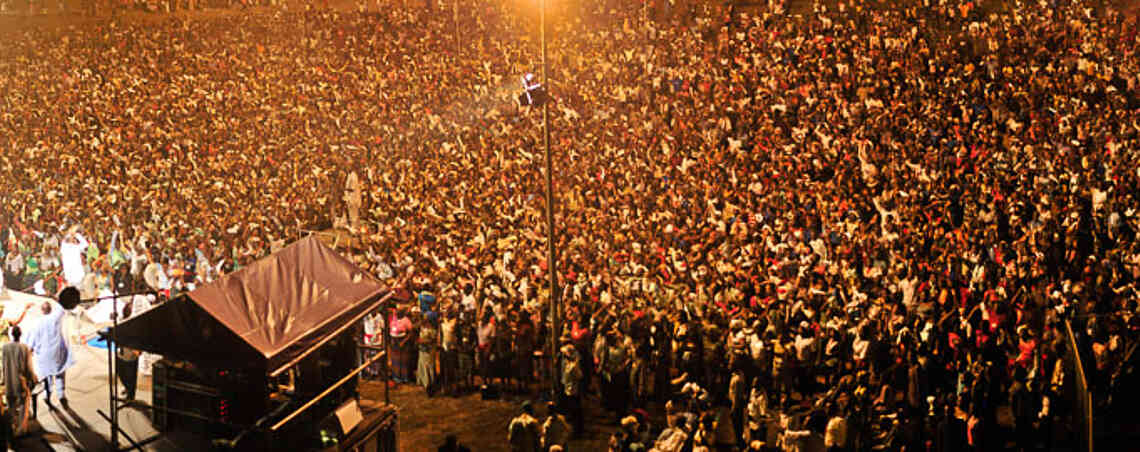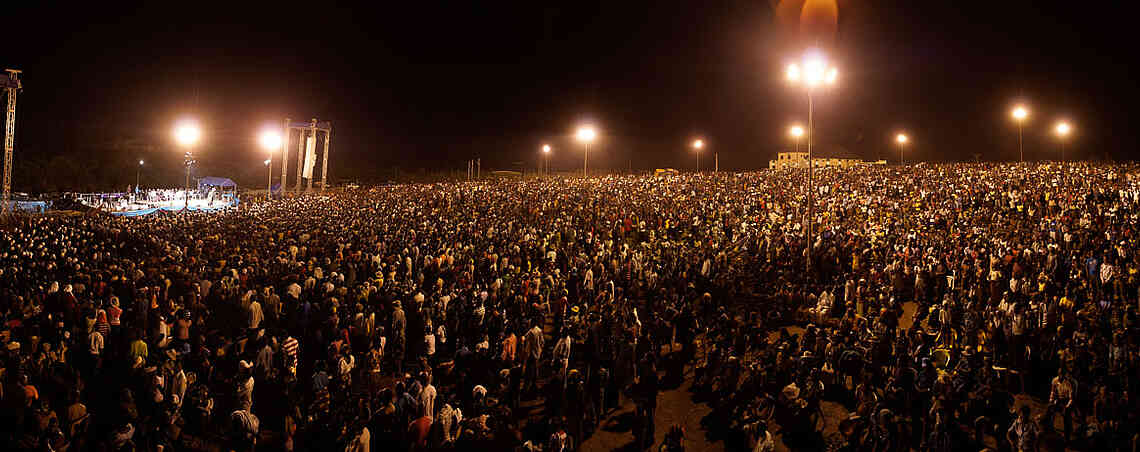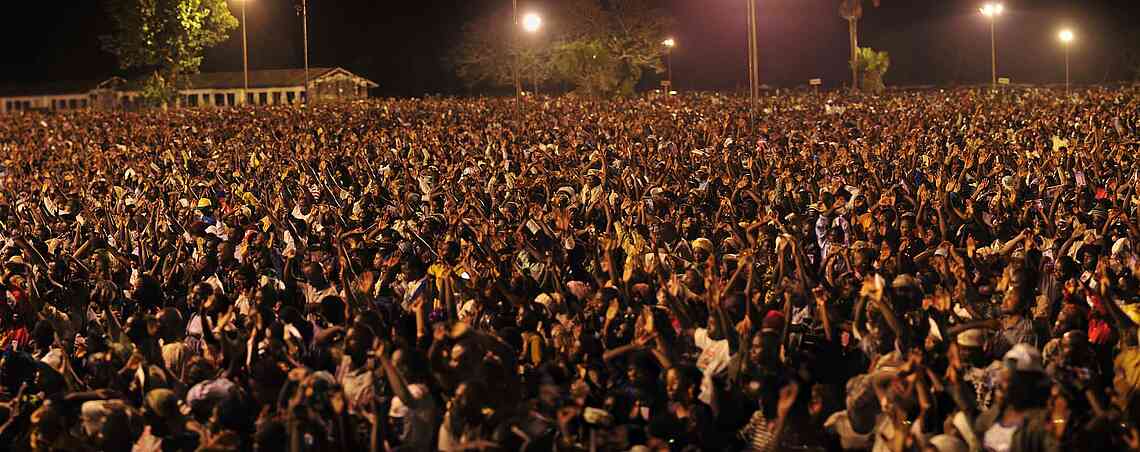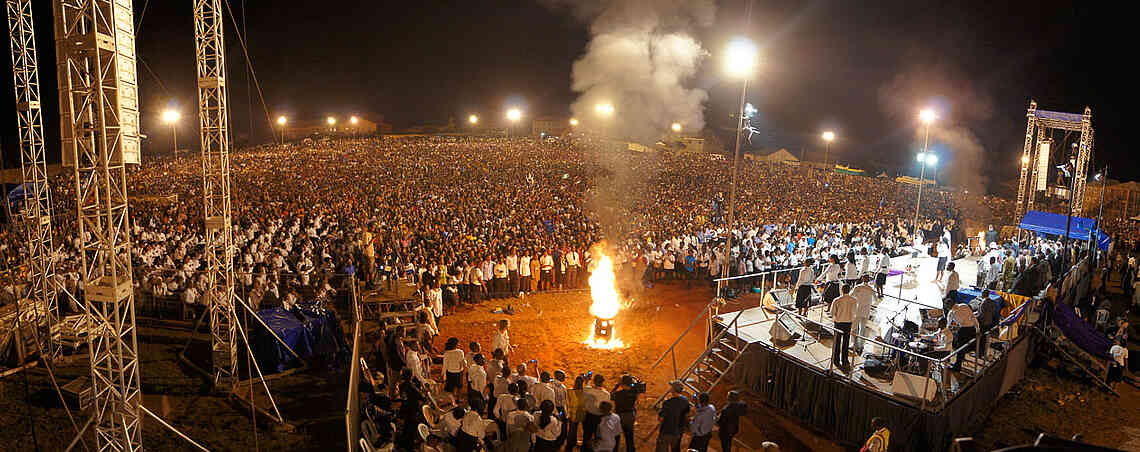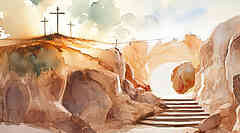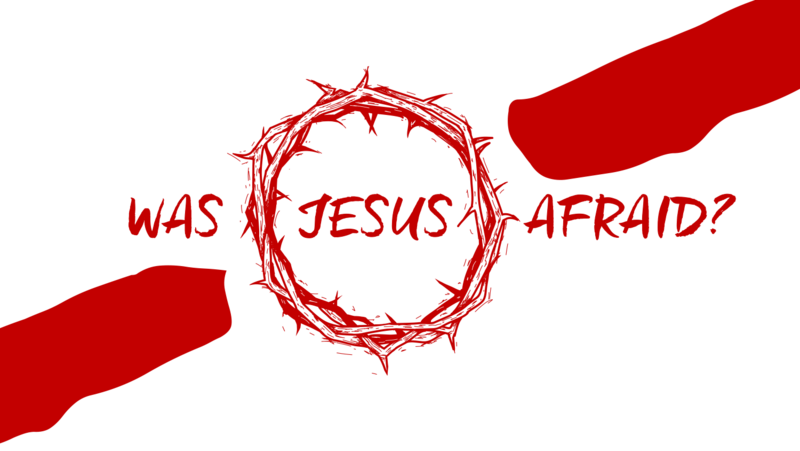
Bible study by Reinhard Bonnke:
Was Jesus Afraid?
Things not said can make a powerful impression. In fact, Jesus amazed Pilate, Herod and the Jewish leaders by saying nothing. The reason He said nothing was because He was never afraid. He did not plead for mercy – or even justice. Lying witnesses could not force Him to ask for pity or beg for fair treatment. He was the Word. He was not going to say what they wanted Him to say, nor would He wrangle with them.
Pilate asked Him if He were a king. Jesus simply replied, “Yes, it is as you say” (Matthew 27:11). No elaborate, self-justifying explanation. Rome could not intimidate Him. His enemies “armed with a little brief authority” had this giant figure in their grip – or so they thought – but in fact they were no more than puppets dancing on the devil’s strings. From the beginning Christ knew that His fate was to be tortured and mocked, and to suffer a mangling death on the cross. But His fate was also that, having conquered death, He would make a world-changing return from the field of cosmic conflict.
At the Last Supper Jesus shocked the disciples by saying that one of them would betray Him. They were appalled and asked who such a traitor could be. Jesus then identified him by offering him food from the communal dish with His own fingers, saying, “What you are about to do, do quickly” (John 13:27). None of the disciples knew what Judas was going to do, but Jesus did. The traitor would go out into the night and plan His arrest with the priests. In effect Jesus gave the signal for His own arrest. Jesus did not cringe before His enemies. He was in charge of the situation.
John gives us a dazzling account of Christ’s final hours of ministry, beginning with “Jesus knew that the time had come for Him to leave this world” (John 13:1). He then gives us 155 Bible verses full of truth vital to our faith. Yet not a single verse reflects fear, self-pity or the slightest appeal for sympathy. Jesus knew that His exit route would take Him through Jerusalem, Gethsemane and the Praetorium to Calvary – and was determined to follow that road with positive dignity. Before setting out for Gethsemane, where Jesus knew He would be arrested, He and His disciples even sang a hymn (Matthew 26:30).
Handel’s oratorio, “The Messiah,” includes a tenor aria based on Lamentations 1:12: “Is it nothing to you, all you who pass by? Behold and see if there is any sorrow like my sorrow.” Handel makes these the words of Christ pleading on the cross. But that is something they never were. Jesus never asked for sympathy. When He had been reduced to a blood-torn wreck after the lashing and brutal treatment meted out by the soldiers, He staggered under the weight of the cross He had to carry because it was too heavy for Him. And still He said nothing. The “women of Jerusalem” – not His followers, but women moved by the sight of this splendid man going to a cruel death – wept for Him. But He said, “Do not weep for me; weep for yourselves and for your children” (Luke 23:28). Jesus was the “man of sorrows” because He knew Jerusalem would be lost in tribulation greater than ever known before. Jesus wept for the city, not for Himself – just as centuries before Jeremiah had also wept not for Himself but for Jerusalem.
Did Jesus shrink from the Cross? That is the view some take. They look at the Gethsemane scene in which Jesus prayed, “Father, take this cup from me.” Critics make what they want of Jesus’ facing the fatal hours of arrest and brutality, concluding that the appalling prospects prompted Jesus to utter words that revealed a weakness in His resolution: “The spirit is willing but the flesh is weak.” Obviously, Jesus would have anticipated that dreadful ending and His physical nature would revolt against it. However, in asking the Father to take the cup from Him, did He really mean His death on the Cross? He had come down from glory and taken on human form to redeem mankind by His physical sacrifice. Could He really want God’s will to turn out differently now that He was on earth and the time for God’s plans to be fulfilled had come?
I do not think so. As contrary evidence, we have Jesus’ own words (John 12:27-33): “Now my heart is troubled and what shall I say? ‘Father, save me from this hour?’ No. It was for this very reason I came to this hour. Father, glorify your name!” He actually told us what that hour was in His next remarks: “I, when I am lifted up from the earth, will draw all men to myself.” The Bible adds, “He said this to show the kind of death He was going to die.” Jesus spoke of glorifying the Father and that glory was His triumph on the Cross – an act that can never be seen as a defeat.
In Gethsemane Jesus said that He was “troubled” in spirit. That was not fear. The Son of God was placing Himself between earth and heaven, lifted up to be a Savior, and His experience would be beyond anything we have ever known or will know. Matthew reports, “My soul is overwhelmed with sorrow to the point of death” (Matthew 26:38). Yet an hour or so before, He had been teaching His disciples and even singing a hymn from the “Hallel”, based on Psalms 113-118.
That “point of death” became more real as He went deeper among the olive trees away from the three disciples and prayed, “My Father, if it is possible, may this cup be taken from me. Yet not as I will, but as you will” (Matthew 26:39). Luke reports (22:44), “Being in anguish, He prayed more earnestly, and His sweat was like drops of blood falling to the ground.”
There were two reasons for this agony. First, the sin of the whole world had been laid upon Him, as the Scriptures had said. And second, He bore that poisoned load to the Cross. This was the most crucial hour in the history of humankind, and as I see it, at that very moment Satan attacked Him with physical distress. Satan had sought to kill Him as soon as He was born. But this was the final assault – trying to ensure that Jesus would die a “natural” death before He got to the Cross, and thus fail to achieve the God-planned victory over death by crucifixion.
Physically, Jesus could have died in Gethsemane. But after His prayer angels came and strengthened Him (Luke 22:43). This is confirmed by Hebrews 5:7-9: “During the days of Jesus’ life on earth, He offered up prayers and petitions with loud cries and tears to the one who could save Him from death, and He was heard.” So He prayed not to die and did not die in Gethsemane. But He did die on the Cross. He would not be spared from that death; He would be raised from that death!
Jesus knew that He had to fulfil the Word of God and give His life for us or He would contradict Himself as the true author of the Word. His death on the Cross was crucial, as Galatians explains: “Christ redeemed us from the curse of the law by becoming a curse for us, for it is written ‘Cursed is everyone that is hung on a tree’” (3:13). The preparatory phase of Judas’ betrayal was also part of the plan: “I know those I have chosen. But this is to fulfil the Scripture: ‘He who shares my bread has lifted up his heal against me’” (John 13:18). After Jesus rose from the dead He again told two of the disciples that it was all – including the suffering – just as Scripture had said: “Everything must be fulfilled that is written about me in the Law of Moses, the Prophets and the Psalms. The Christ will suffer” (Luke 24:44-46). The powers of hell and death confronted Him in their last desperate fling to prevent the Word from being fulfilled by ending His life before He reached the Cross.
This was all part of the triumph of Christ, bringing us eternal salvation. He overcame hell, death and the devil in an unparalleled struggle. He rejoiced in everything He did as a warrior rejoices in combat. He told others, “Do not be afraid of those who kill the body” (Matthew 10:28). Fear is irrelevant in the exuberance of winning the battle. That is our Captain of salvation, the Rider on the white horse, our Lord Jesus Christ, who knew no fear and never will.
Reinhard Bonnke


